Writing Quotes
Most popular writing quotes
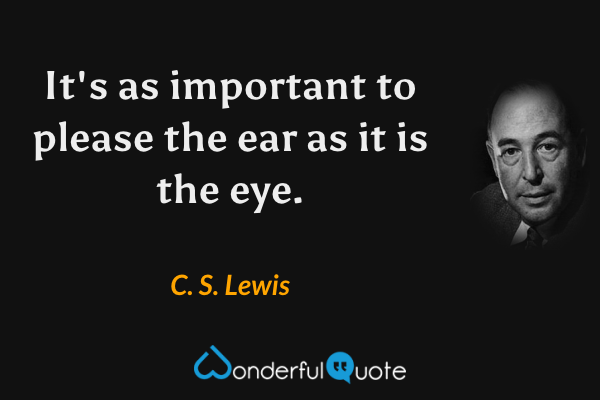
It's as important to please the ear as it is the eye.
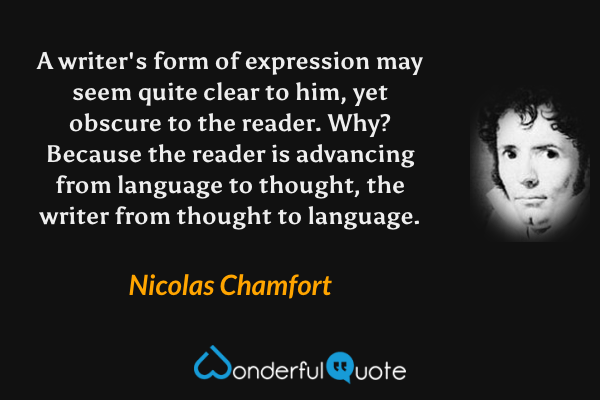
A writer's form of expression may seem quite clear to him, yet obscure to the reader. Why? Because the reader is advancing from language to thought, the writer from thought to language.
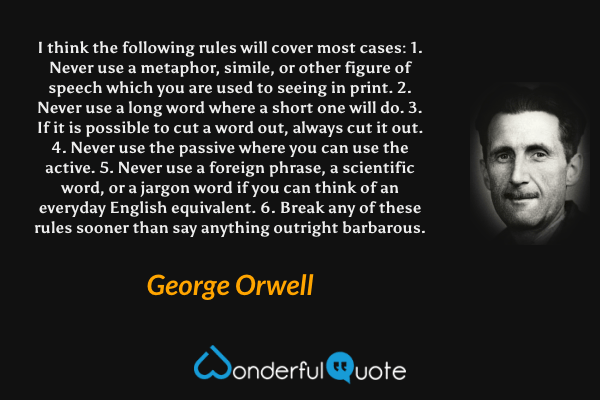
I think the following rules will cover most cases: 1. Never use a metaphor, simile, or other figure of speech which you are used to seeing in print. 2. Never use a long word where a short one will do. 3. If it is possible to cut a word out, always cut it out. 4. Never use the passive where you can use the active. 5. Never use a foreign phrase, a scientific word, or a jargon word if you can think of an everyday English equivalent. 6. Break any of these rules sooner than say anything outright barbarous.
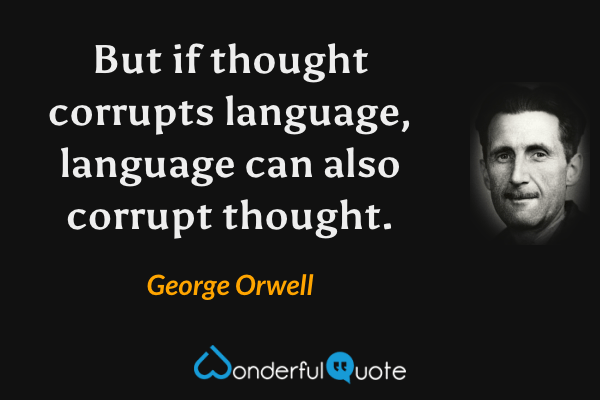
But if thought corrupts language, language can also corrupt thought.
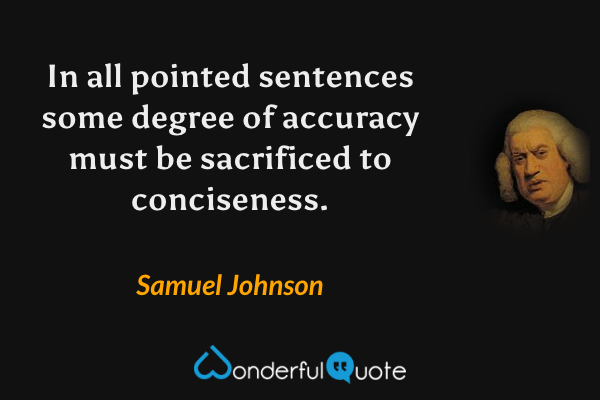
In all pointed sentences some degree of accuracy must be sacrificed to conciseness.
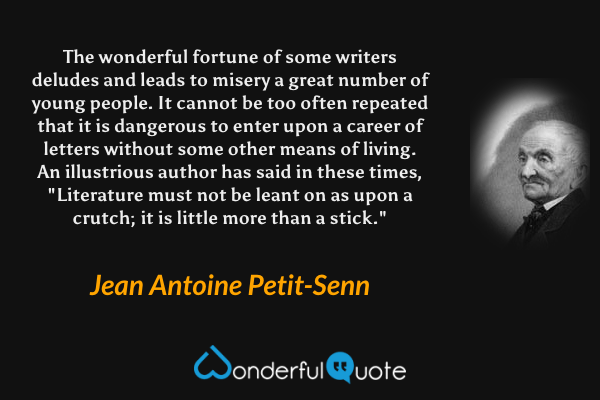
The wonderful fortune of some writers deludes and leads to misery a great number of young people. It cannot be too often repeated that it is dangerous to enter upon a career of letters without some other means of living. An illustrious author has said in these times, "Literature must not be leant on as upon a crutch; it is little more than a stick."
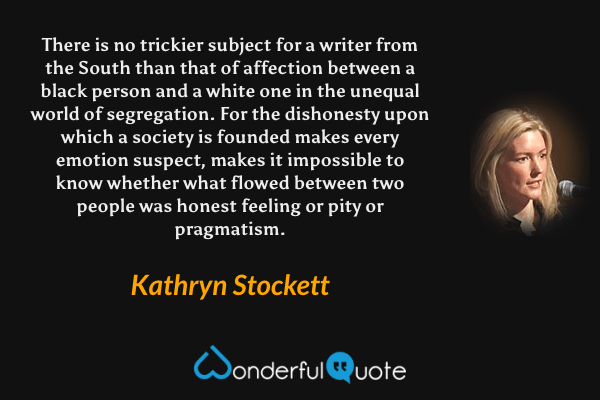
There is no trickier subject for a writer from the South than that of affection between a black person and a white one in the unequal world of segregation. For the dishonesty upon which a society is founded makes every emotion suspect, makes it impossible to know whether what flowed between two people was honest feeling or pity or pragmatism.
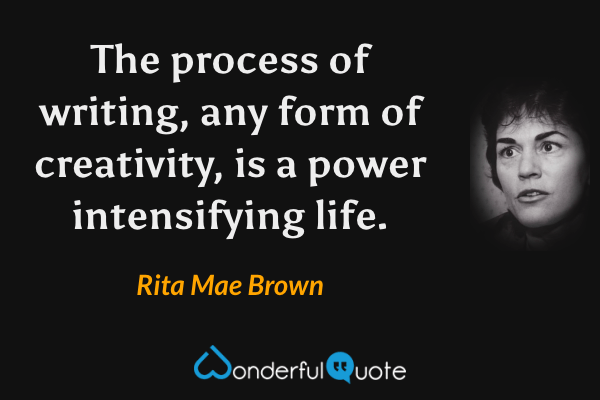
The process of writing, any form of creativity, is a power intensifying life.
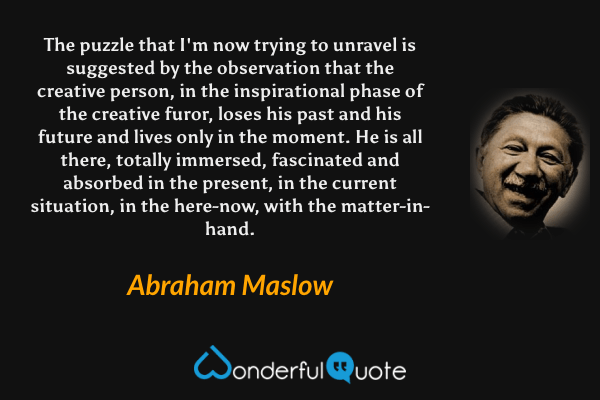
The puzzle that I'm now trying to unravel is suggested by the observation that the creative person, in the inspirational phase of the creative furor, loses his past and his future and lives only in the moment. He is all there, totally immersed, fascinated and absorbed in the present, in the current situation, in the here-now, with the matter-in-hand.
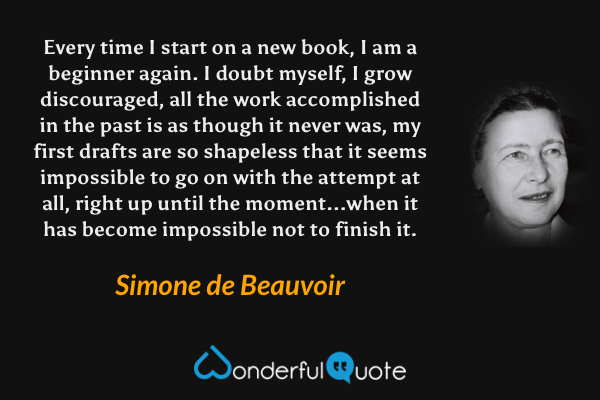
Every time I start on a new book, I am a beginner again. I doubt myself, I grow discouraged, all the work accomplished in the past is as though it never was, my first drafts are so shapeless that it seems impossible to go on with the attempt at all, right up until the moment...when it has become impossible not to finish it.
As well as being good company for writers, cats and dogs can make good muses. (If you love animals, you'll understand. If you don't, just skip this.) My cats, Stuart and Charlotte, have listened to more bad prose read aloud, to more moaning about how hard it is to write, as well as to bizarre moments of my over-the-top optimism — and they never lose their cool. They never say to me, Oh, stop whining, and find some real work, or Don't count your chickens, cookie, or Don't you think this might be a little too personal to write about?
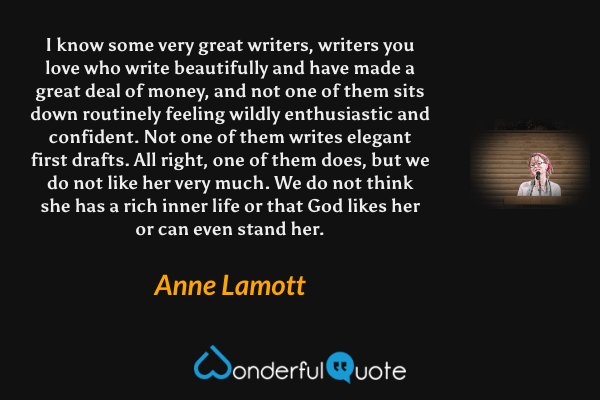
I know some very great writers, writers you love who write beautifully and have made a great deal of money, and not one of them sits down routinely feeling wildly enthusiastic and confident. Not one of them writes elegant first drafts. All right, one of them does, but we do not like her very much. We do not think she has a rich inner life or that God likes her or can even stand her.
I learned that you should feel when writing, not like Lord Byron on a mountain top, but like a child stringing beads in kindergarten — happy, absorbed and quietly putting one bead on after another.
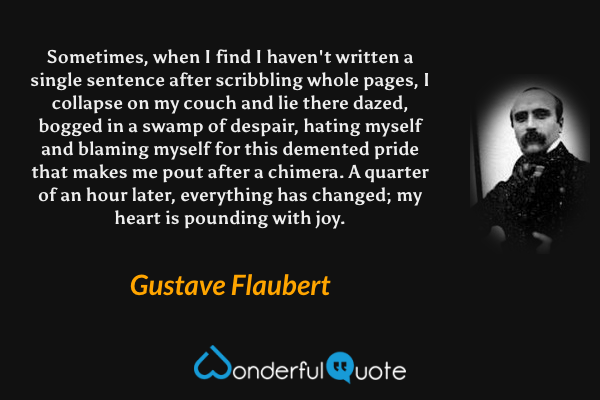
Sometimes, when I find I haven't written a single sentence after scribbling whole pages, I collapse on my couch and lie there dazed, bogged in a swamp of despair, hating myself and blaming myself for this demented pride that makes me pout after a chimera. A quarter of an hour later, everything has changed; my heart is pounding with joy.
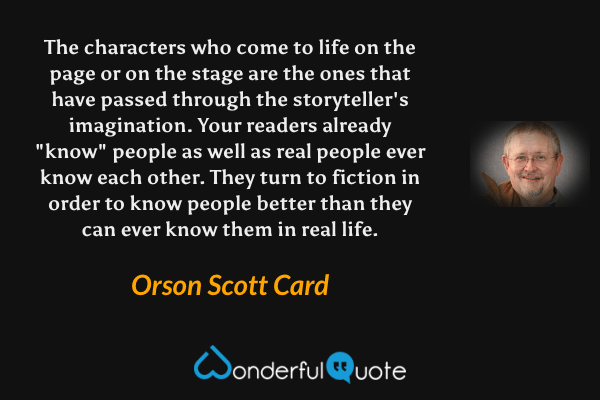
The characters who come to life on the page or on the stage are the ones that have passed through the storyteller's imagination. Your readers already "know" people as well as real people ever know each other. They turn to fiction in order to know people better than they can ever know them in real life.
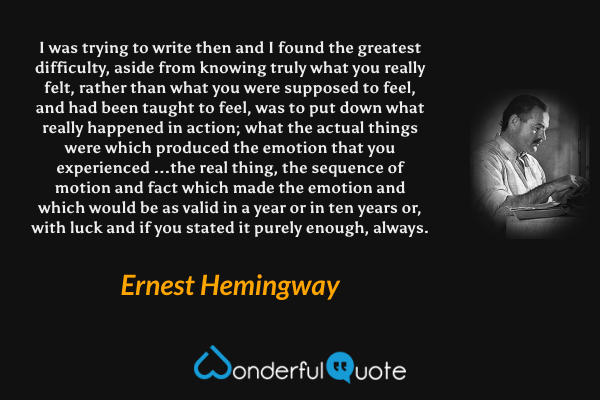
I was trying to write then and I found the greatest difficulty, aside from knowing truly what you really felt, rather than what you were supposed to feel, and had been taught to feel, was to put down what really happened in action; what the actual things were which produced the emotion that you experienced ...the real thing, the sequence of motion and fact which made the emotion and which would be as valid in a year or in ten years or, with luck and if you stated it purely enough, always.
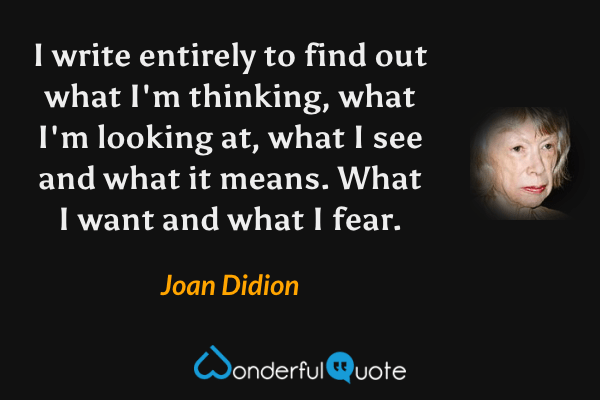
I write entirely to find out what I'm thinking, what I'm looking at, what I see and what it means. What I want and what I fear.
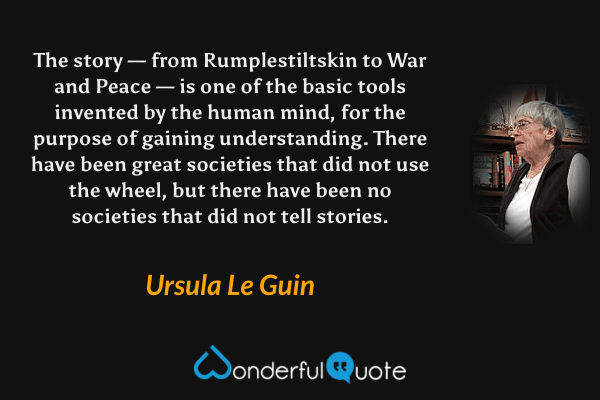
The story — from Rumplestiltskin to War and Peace — is one of the basic tools invented by the human mind, for the purpose of gaining understanding. There have been great societies that did not use the wheel, but there have been no societies that did not tell stories.
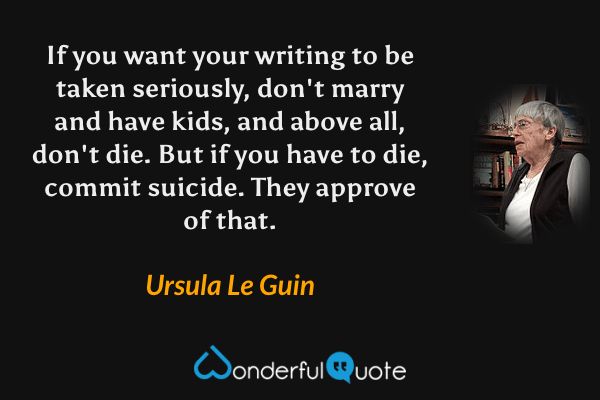
If you want your writing to be taken seriously, don't marry and have kids, and above all, don't die. But if you have to die, commit suicide. They approve of that.
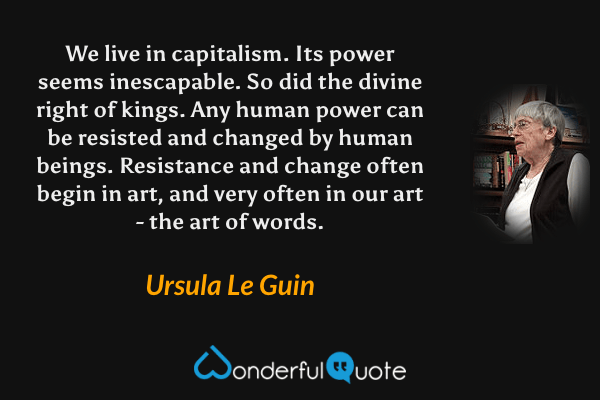
We live in capitalism. Its power seems inescapable. So did the divine right of kings. Any human power can be resisted and changed by human beings. Resistance and change often begin in art, and very often in our art - the art of words.
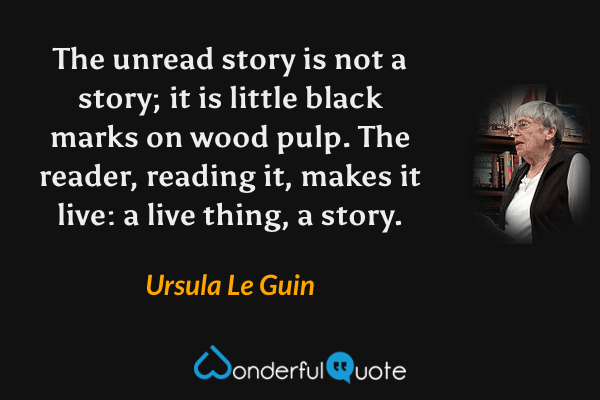
The unread story is not a story; it is little black marks on wood pulp. The reader, reading it, makes it live: a live thing, a story.
Writing is a kind of double living. The writer experiences everything twice. Once in reality and once in that mirror which waits always before or behind.
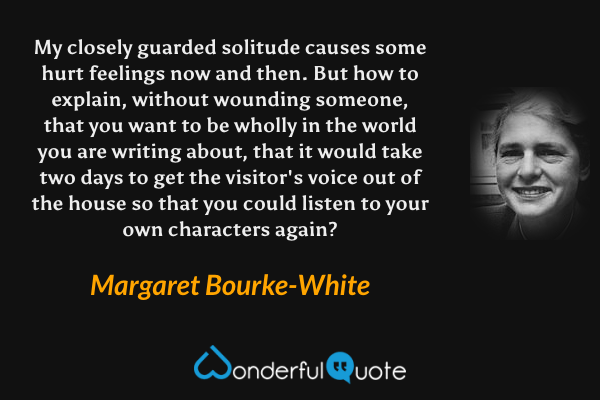
My closely guarded solitude causes some hurt feelings now and then. But how to explain, without wounding someone, that you want to be wholly in the world you are writing about, that it would take two days to get the visitor's voice out of the house so that you could listen to your own characters again?
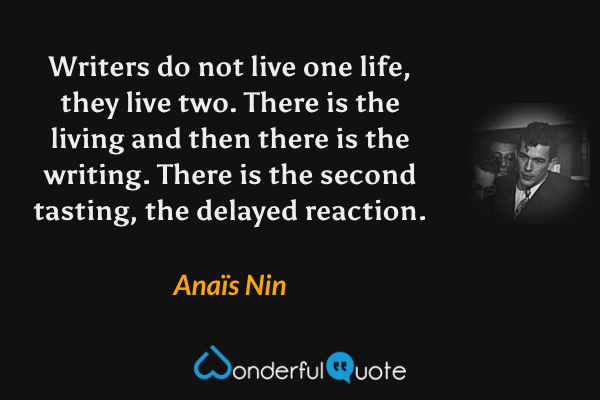
Writers do not live one life, they live two. There is the living and then there is the writing. There is the second tasting, the delayed reaction.
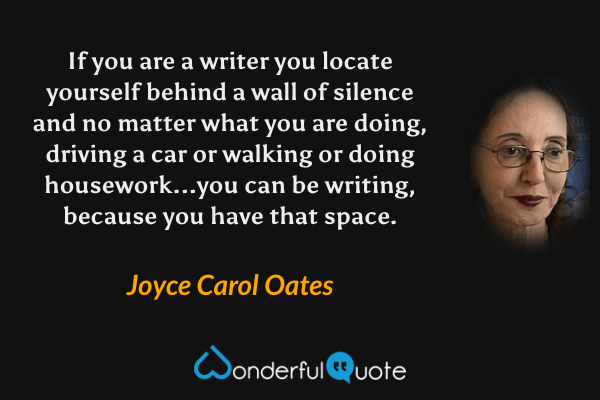
If you are a writer you locate yourself behind a wall of silence and no matter what you are doing, driving a car or walking or doing housework...you can be writing, because you have that space.
All your characters are you, virtuals of you; writing is a controlled process of splitting into virtual personalities in the safe haven of the page. I can't tell you how to do that except to say that it feels like self-hypnosis and probably is. Controlled meditation helps. Once you've invented a character and gotten to know her, you relax into the role and she appears.
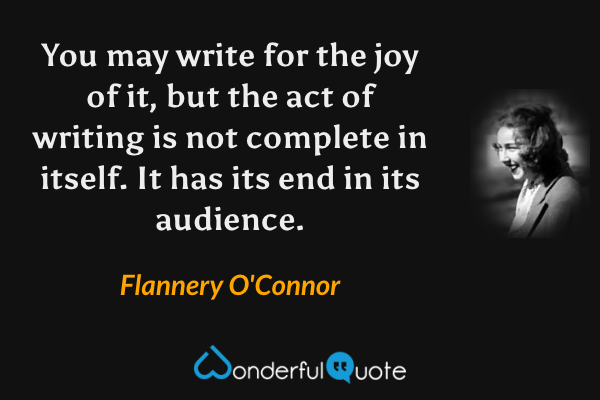
You may write for the joy of it, but the act of writing is not complete in itself. It has its end in its audience.
The material of your life is yours to claim and use. It's also yours to bend, stretch, mold, and change. Part of finding your voice is giving yourself permission to use your life and the lives around you for material — and then to distort that material outrageously. Events of your life can be a starting point. But you need to give your voice permission and range to draw on other events and lives as well as your own imagination.
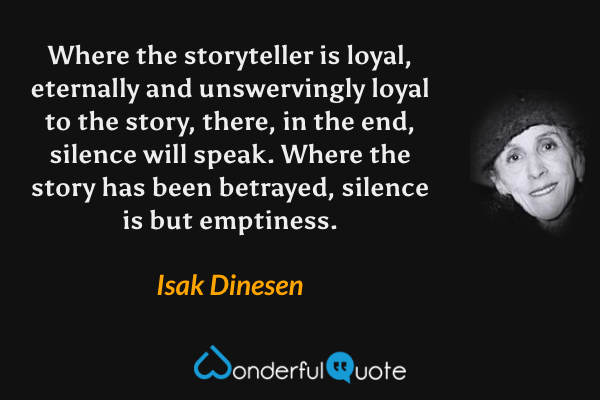
Where the storyteller is loyal, eternally and unswervingly loyal to the story, there, in the end, silence will speak. Where the story has been betrayed, silence is but emptiness.
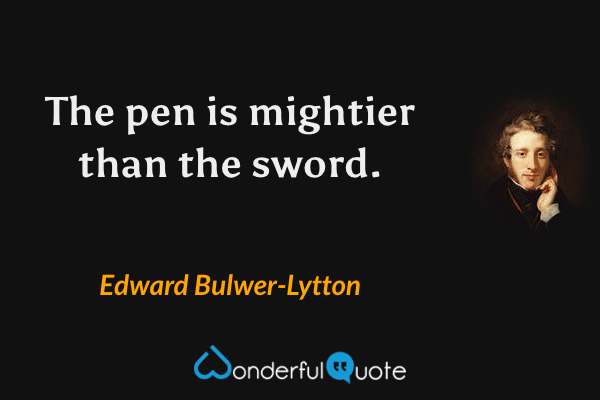
The pen is mightier than the sword.
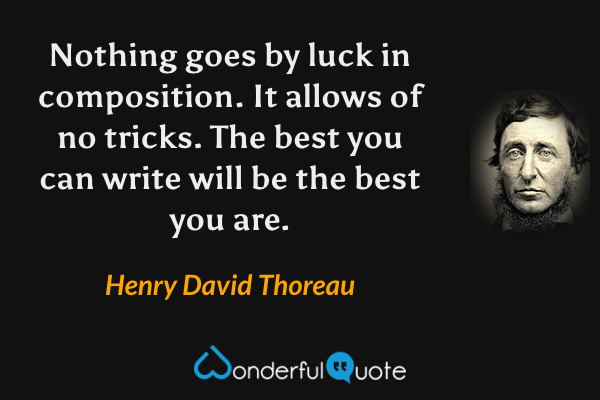
Nothing goes by luck in composition. It allows of no tricks. The best you can write will be the best you are.
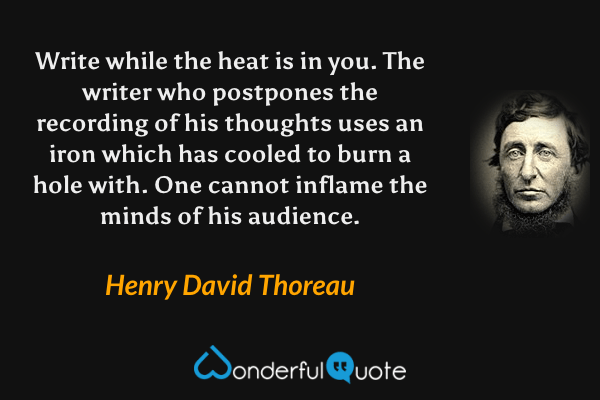
Write while the heat is in you. The writer who postpones the recording of his thoughts uses an iron which has cooled to burn a hole with. One cannot inflame the minds of his audience.
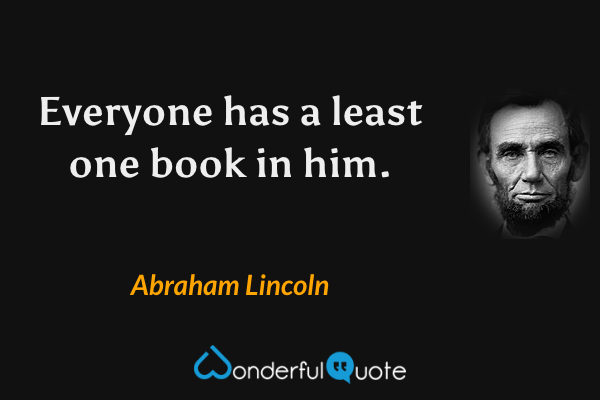
Everyone has a least one book in him.
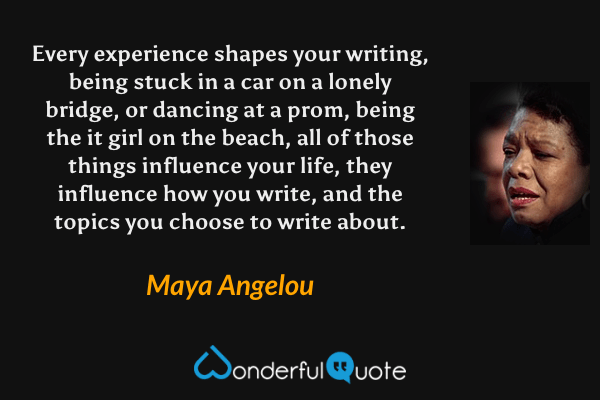
Every experience shapes your writing, being stuck in a car on a lonely bridge, or dancing at a prom, being the it girl on the beach, all of those things influence your life, they influence how you write, and the topics you choose to write about.
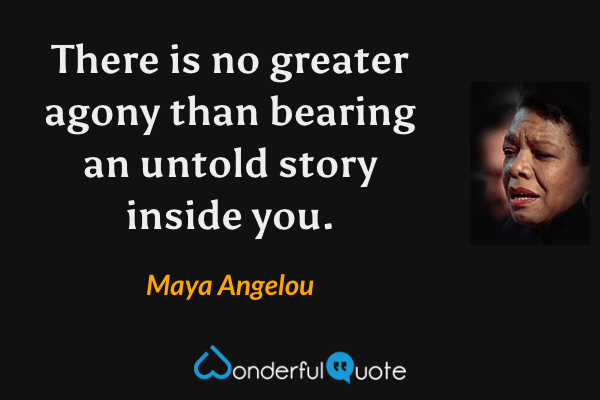
There is no greater agony than bearing an untold story inside you.
It is often wonderful how putting down on paper a clear statement of a case helps one to see, not perhaps the way out, but the way in.
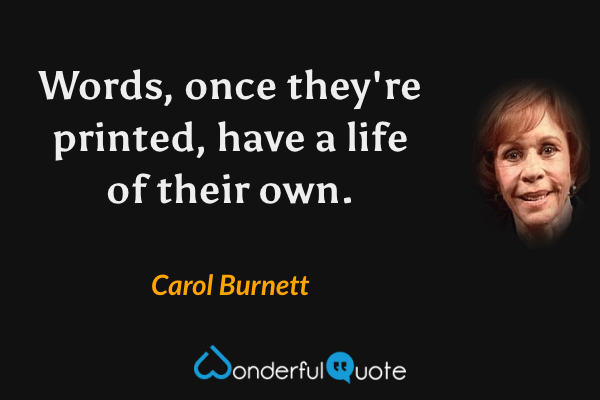
Words, once they're printed, have a life of their own.
To base thought only on speech is to try nailing whispers to the wall. Writing freezes thought and offers it up for inspection.
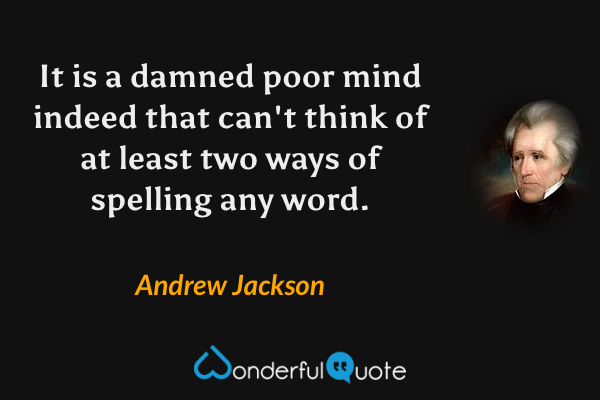
It is a damned poor mind indeed that can't think of at least two ways of spelling any word.
No one ever really paid the price of a book—only the price of printing it.
When something can be read without effort, great effort has gone into its writing.
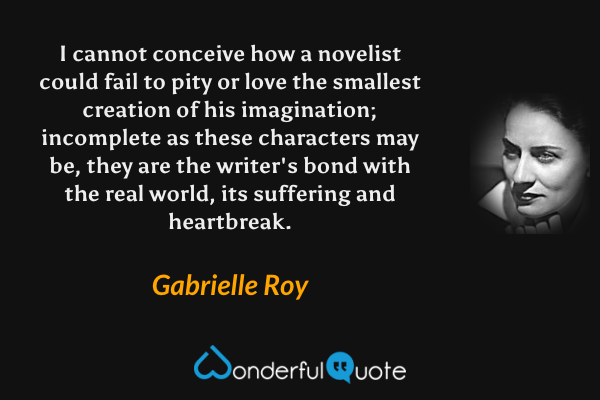
I cannot conceive how a novelist could fail to pity or love the smallest creation of his imagination; incomplete as these characters may be, they are the writer's bond with the real world, its suffering and heartbreak.
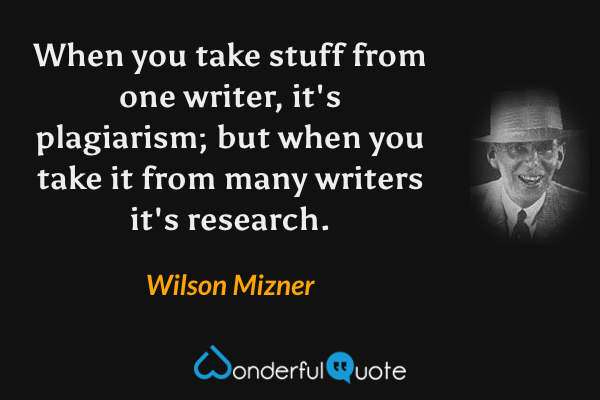
When you take stuff from one writer, it's plagiarism; but when you take it from many writers it's research.
There's nothing to writing. All you do is sit down at a typewriter and open a vein.
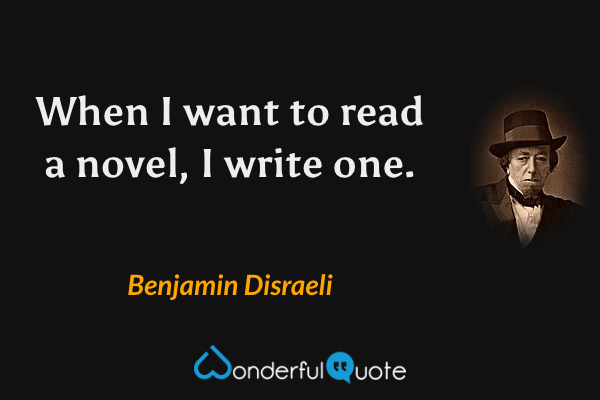
When I want to read a novel, I write one.
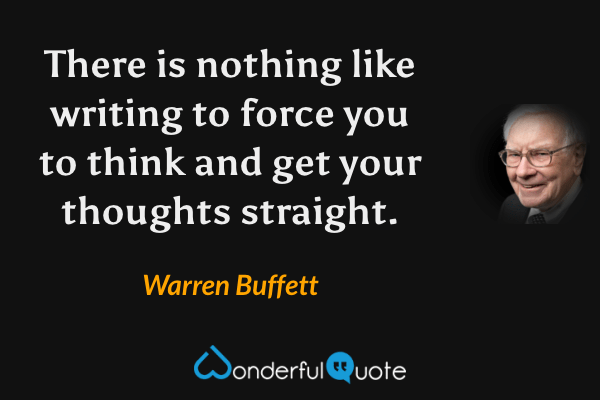
There is nothing like writing to force you to think and get your thoughts straight.
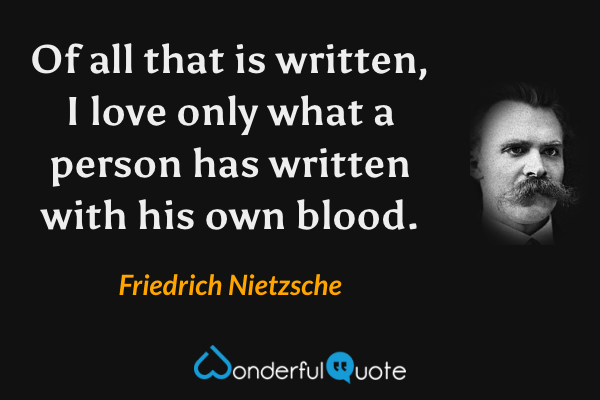
Of all that is written, I love only what a person has written with his own blood.
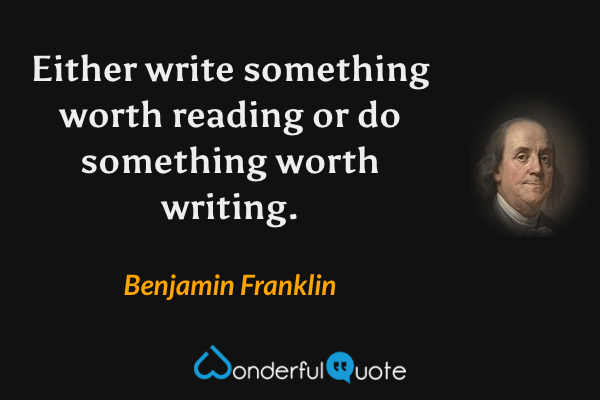
Either write something worth reading or do something worth writing.
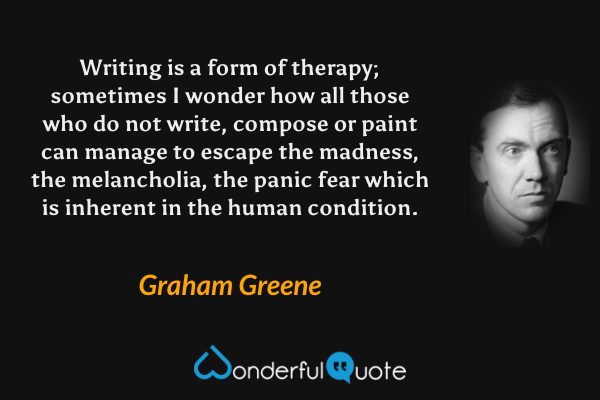
Writing is a form of therapy; sometimes I wonder how all those who do not write, compose or paint can manage to escape the madness, the melancholia, the panic fear which is inherent in the human condition.
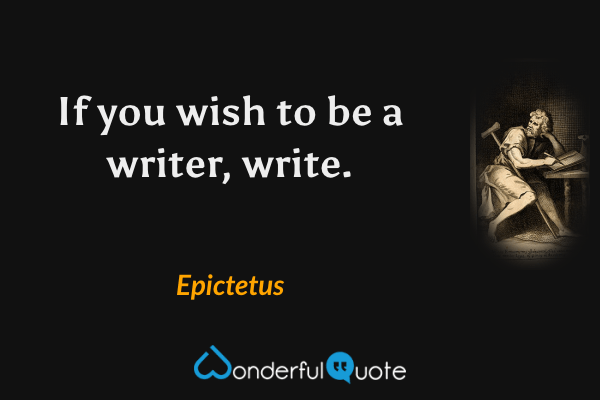
If you wish to be a writer, write.
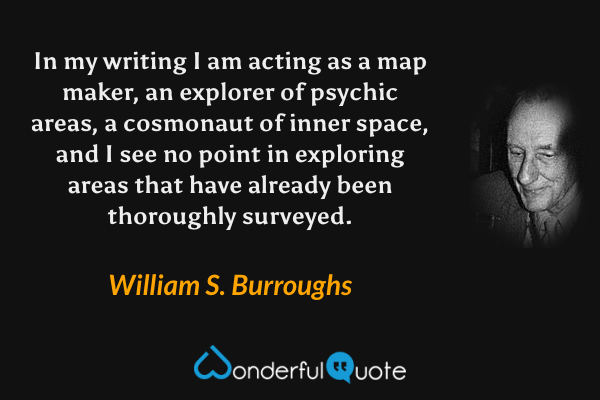
In my writing I am acting as a map maker, an explorer of psychic areas, a cosmonaut of inner space, and I see no point in exploring areas that have already been thoroughly surveyed.
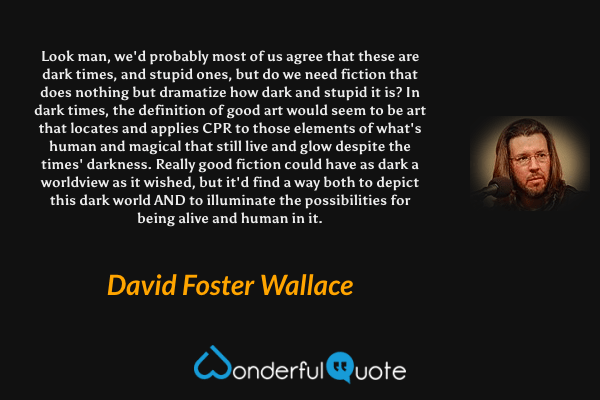
Look man, we'd probably most of us agree that these are dark times, and stupid ones, but do we need fiction that does nothing but dramatize how dark and stupid it is? In dark times, the definition of good art would seem to be art that locates and applies CPR to those elements of what's human and magical that still live and glow despite the times' darkness. Really good fiction could have as dark a worldview as it wished, but it'd find a way both to depict this dark world AND to illuminate the possibilities for being alive and human in it.
You don't have to write a book in order to reflect reality. You can also write a book to create reality.
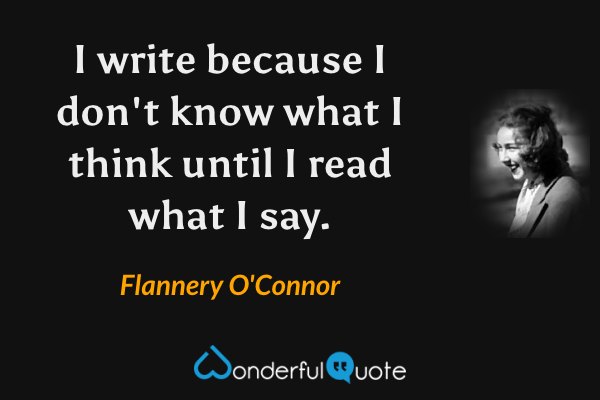
I write because I don't know what I think until I read what I say.
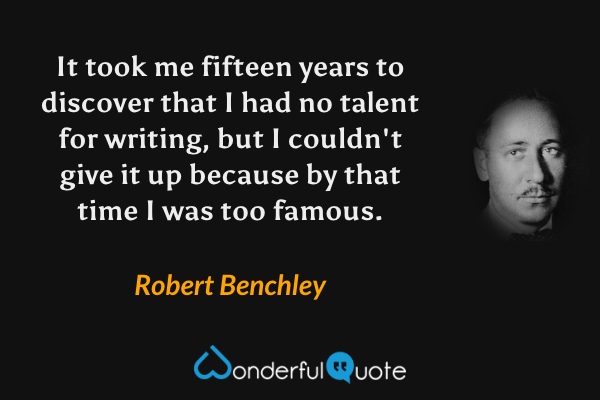
It took me fifteen years to discover that I had no talent for writing, but I couldn't give it up because by that time I was too famous.
The profession of book writing makes horse racing seem like a solid, stable business.
To write a book is a task needing only one pen, ink, and paper; to print a book is rather more difficult, because genius often expresses itself illegibly; to read a book is more difficult still, for one has to struggle with sleep; but to sell a book is the most difficult task of all.
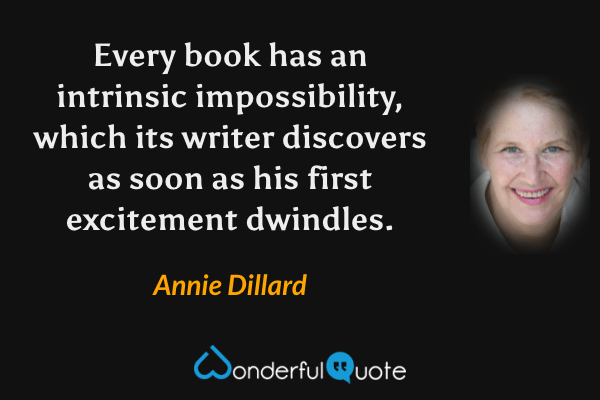
Every book has an intrinsic impossibility, which its writer discovers as soon as his first excitement dwindles.
Reading maketh a full man; conference a ready man; and writing an exact man.
What no wife of a writer can ever understand, no matter if she lives with him for twenty years, is that a writer is working when he's staring out the window.
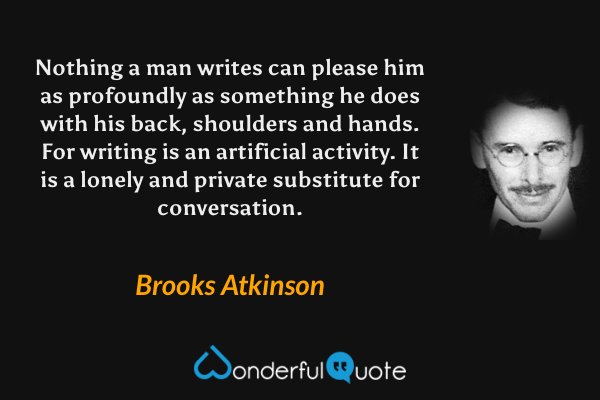
Nothing a man writes can please him as profoundly as something he does with his back, shoulders and hands. For writing is an artificial activity. It is a lonely and private substitute for conversation.
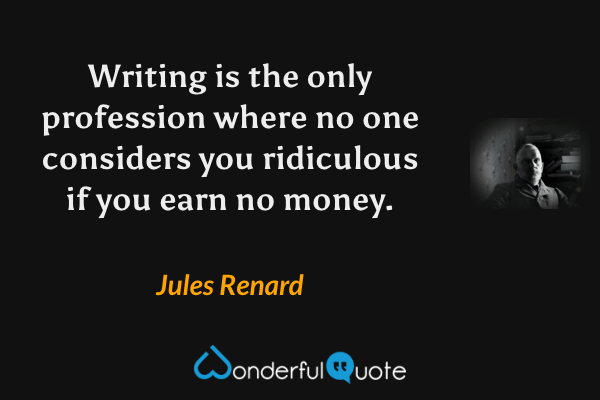
Writing is the only profession where no one considers you ridiculous if you earn no money.
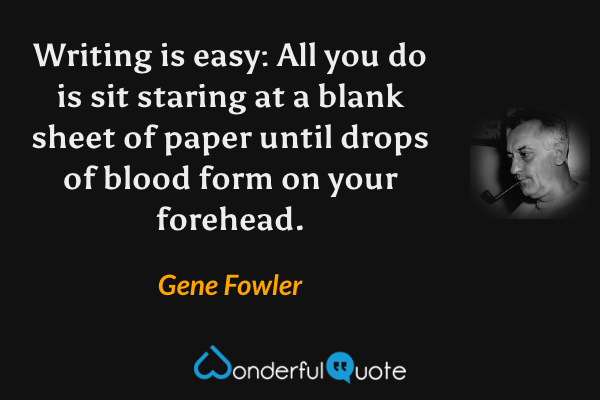
Writing is easy: All you do is sit staring at a blank sheet of paper until drops of blood form on your forehead.
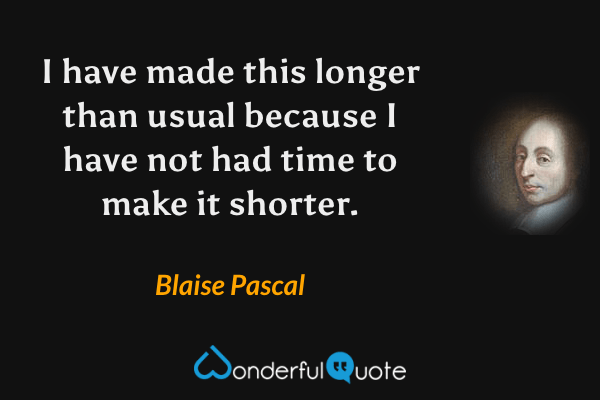
I have made this longer than usual because I have not had time to make it shorter.
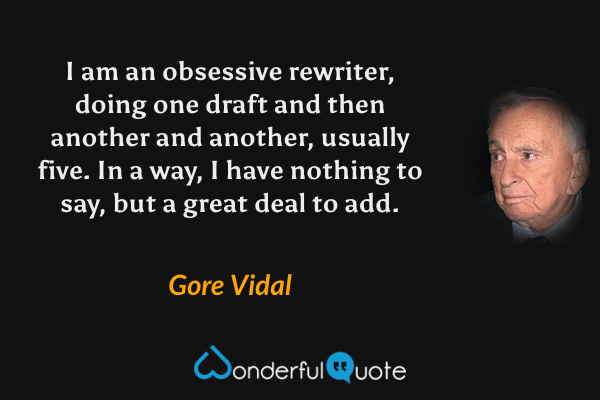
I am an obsessive rewriter, doing one draft and then another and another, usually five. In a way, I have nothing to say, but a great deal to add.
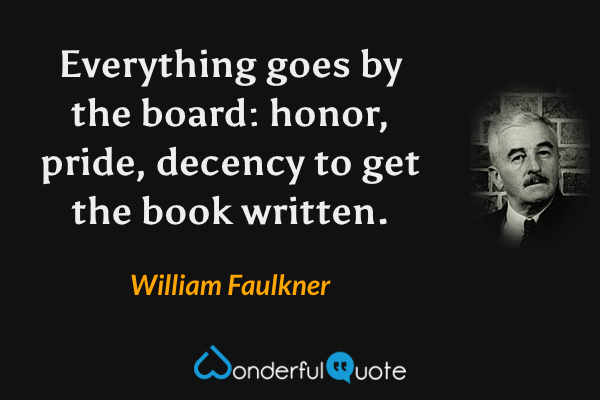
Everything goes by the board: honor, pride, decency to get the book written.
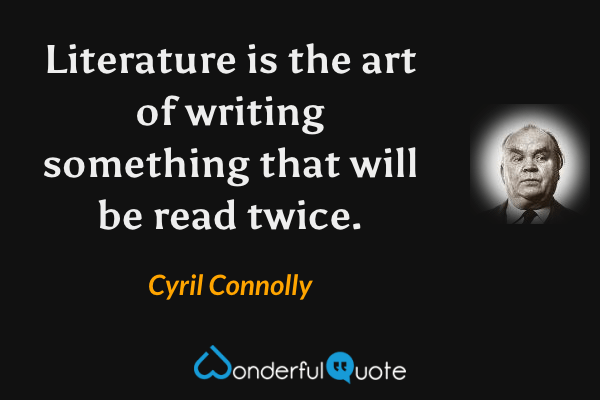
Literature is the art of writing something that will be read twice.
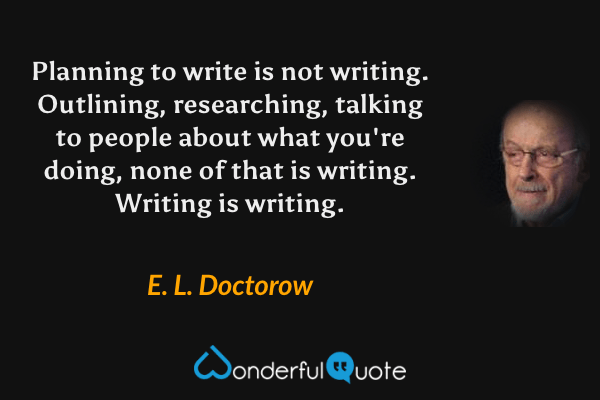
Planning to write is not writing. Outlining, researching, talking to people about what you're doing, none of that is writing. Writing is writing.
Writing is the great vocation of the dispossessed.
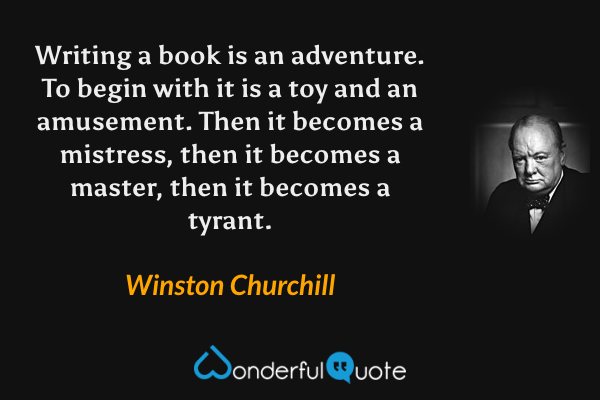
Writing a book is an adventure. To begin with it is a toy and an amusement. Then it becomes a mistress, then it becomes a master, then it becomes a tyrant.
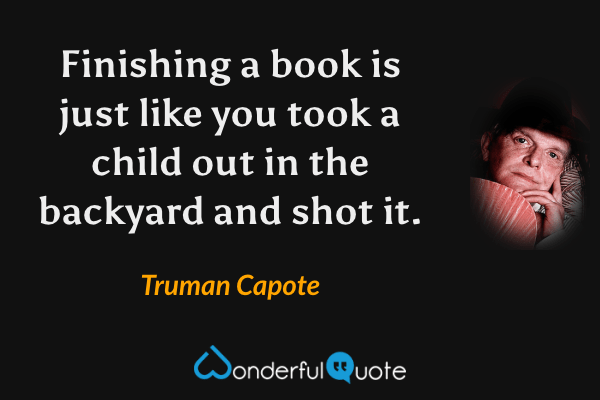
Finishing a book is just like you took a child out in the backyard and shot it.
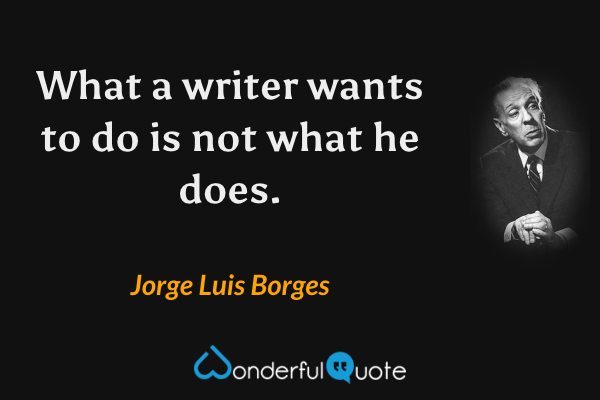
What a writer wants to do is not what he does.
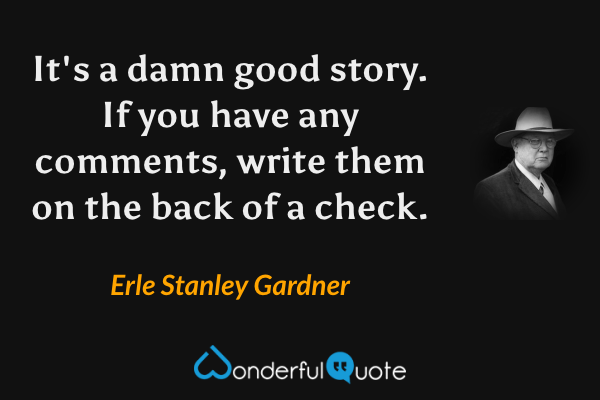
It's a damn good story. If you have any comments, write them on the back of a check.
Will the reader turn the page?
IF YOU KNOW WHAT I MEAN A poet should be of the old-fashioned meaningless brand: obscure, esoteric, symbolic, -- the critics demand it; so if there's a poem of mine that you do understand I'll gladly explain what it means till you don't understand it.
Long-winded writers I abhor, and glib, prolific chatters; give me the ones who tear and gaw their hair and pens to tatters: who find heir writing such a chore they only write what matters.
A TIP A tip to members of the literary profession Those who can write have a lot to learn from those bright enough not to.
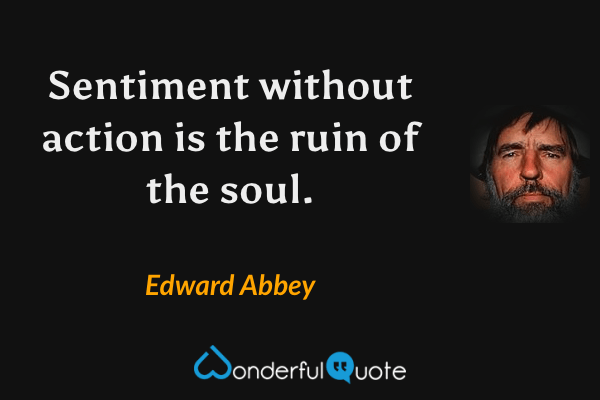
Sentiment without action is the ruin of the soul.
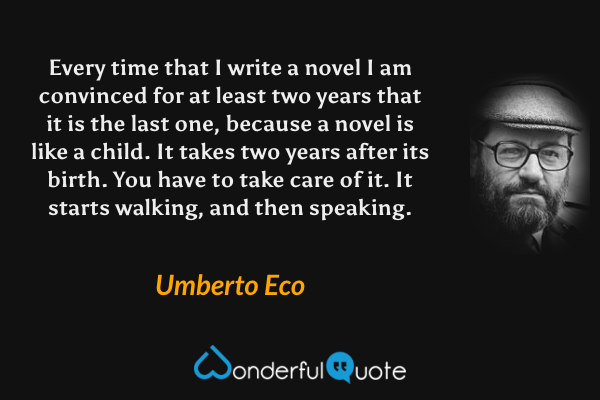
Every time that I write a novel I am convinced for at least two years that it is the last one, because a novel is like a child. It takes two years after its birth. You have to take care of it. It starts walking, and then speaking.
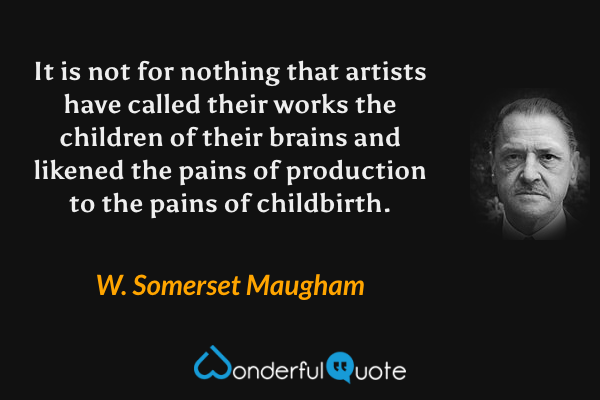
It is not for nothing that artists have called their works the children of their brains and likened the pains of production to the pains of childbirth.
The profession of book-writing makes horse-racing seem like a solid, stable business.
Don't ask a writer what he's working on. It's like asking someone with cancer about the progress of his disease.
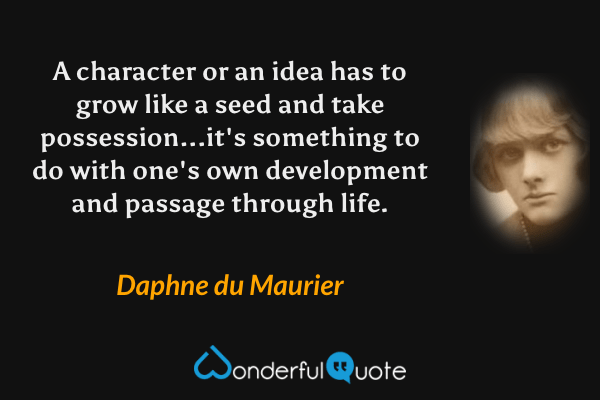
A character or an idea has to grow like a seed and take possession...it's something to do with one's own development and passage through life.
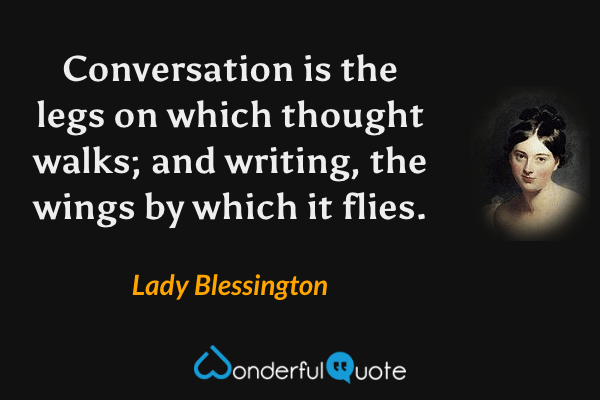
Conversation is the legs on which thought walks; and writing, the wings by which it flies.
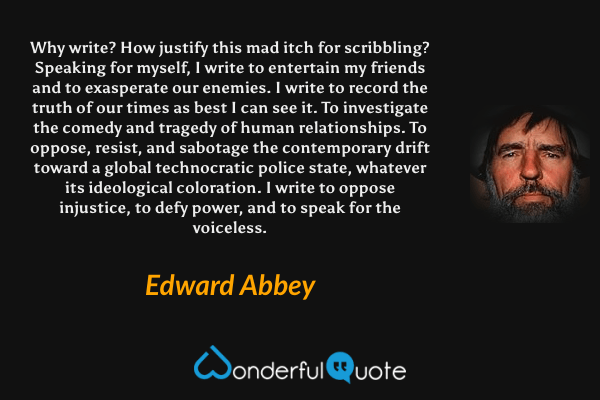
Why write? How justify this mad itch for scribbling? Speaking for myself, I write to entertain my friends and to exasperate our enemies. I write to record the truth of our times as best I can see it. To investigate the comedy and tragedy of human relationships. To oppose, resist, and sabotage the contemporary drift toward a global technocratic police state, whatever its ideological coloration. I write to oppose injustice, to defy power, and to speak for the voiceless.
True ease in writing comes from art, not chance, As those move easiest who have learned to dance.
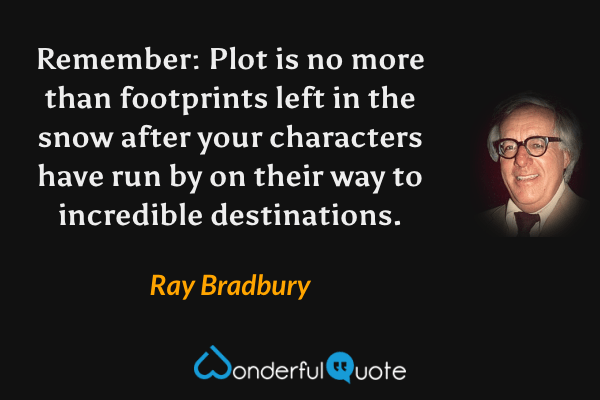
Remember: Plot is no more than footprints left in the snow after your characters have run by on their way to incredible destinations.
Against the disease of writing one must take special precautions, since it is a dangerous and contagious disease.
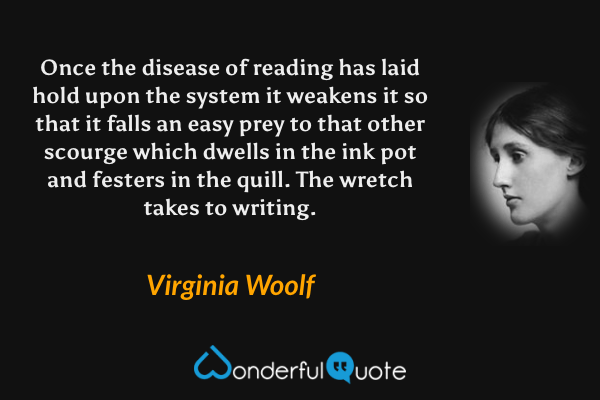
Once the disease of reading has laid hold upon the system it weakens it so that it falls an easy prey to that other scourge which dwells in the ink pot and festers in the quill. The wretch takes to writing.
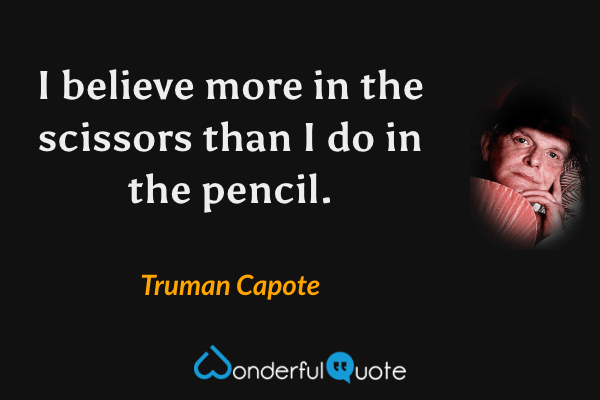
I believe more in the scissors than I do in the pencil.
![[In primary school] I was introduced to the danger of not having your own story. There is that great proverb—that until the lions have their own historians, the history of the hunt will always glorify the hunter. - Chinua Achebe quote.](/img/q/75/32775A-in-primary-school-i-was-introduced-danger-not-having-your-chinua-achebe.png)
[In primary school] I was introduced to the danger of not having your own story. There is that great proverb—that until the lions have their own historians, the history of the hunt will always glorify the hunter.
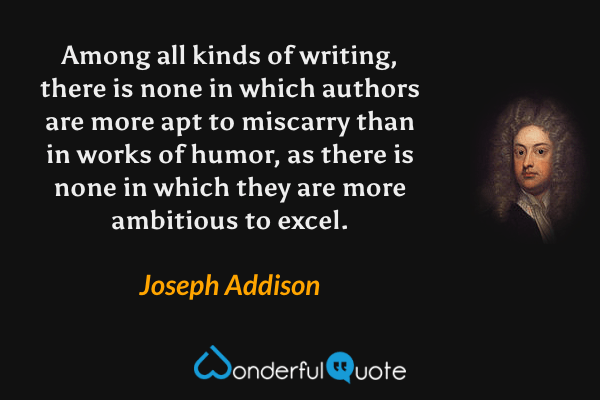
Among all kinds of writing, there is none in which authors are more apt to miscarry than in works of humor, as there is none in which they are more ambitious to excel.
A writer didn't need "an" idea for a book; she needed at least forty. And "get" was the wrong word, implying that you received an idea as you would a gift.
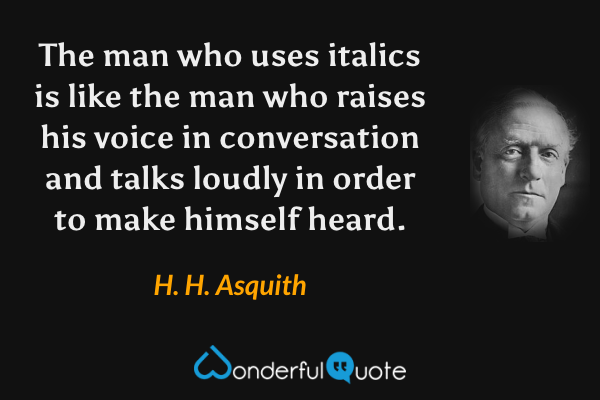
The man who uses italics is like the man who raises his voice in conversation and talks loudly in order to make himself heard.
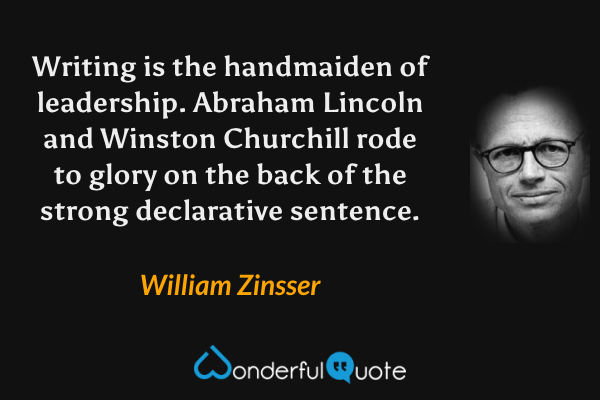
Writing is the handmaiden of leadership. Abraham Lincoln and Winston Churchill rode to glory on the back of the strong declarative sentence.
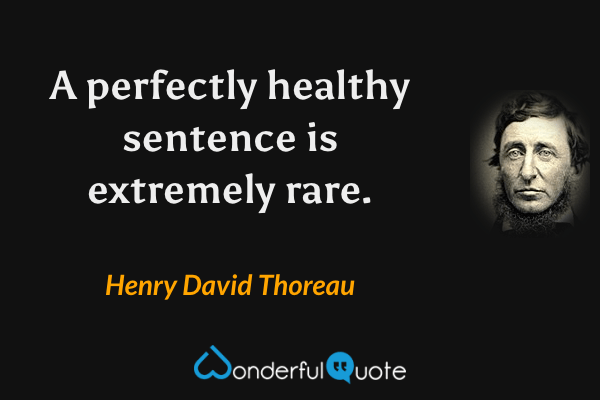
A perfectly healthy sentence is extremely rare.
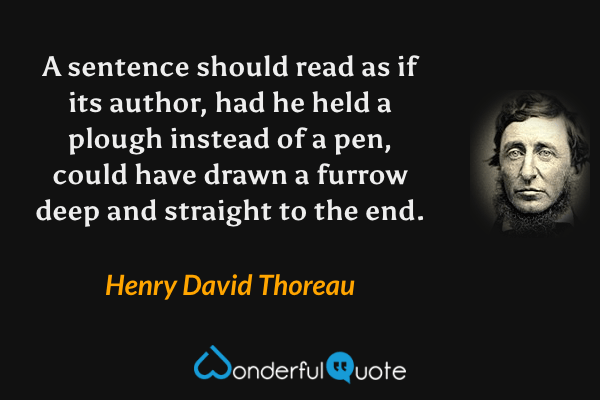
A sentence should read as if its author, had he held a plough instead of a pen, could have drawn a furrow deep and straight to the end.
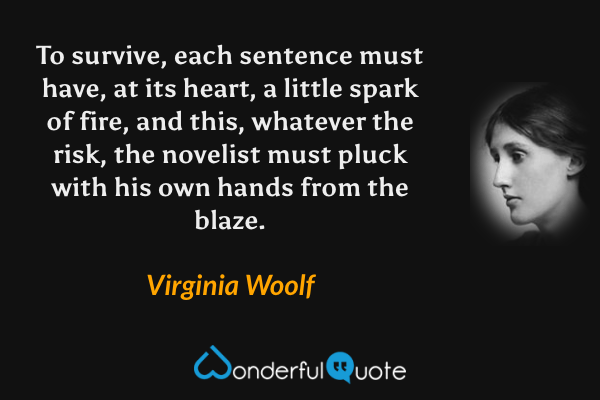
To survive, each sentence must have, at its heart, a little spark of fire, and this, whatever the risk, the novelist must pluck with his own hands from the blaze.
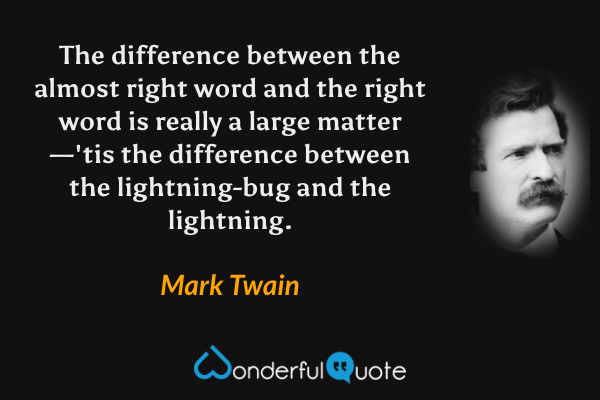
The difference between the almost right word and the right word is really a large matter—'tis the difference between the lightning-bug and the lightning.
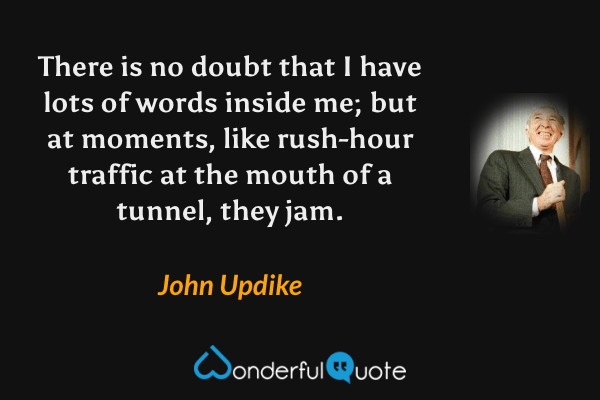
There is no doubt that I have lots of words inside me; but at moments, like rush-hour traffic at the mouth of a tunnel, they jam.
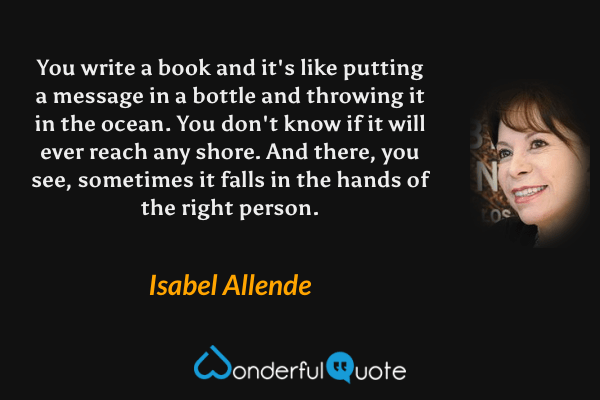
You write a book and it's like putting a message in a bottle and throwing it in the ocean. You don't know if it will ever reach any shore. And there, you see, sometimes it falls in the hands of the right person.
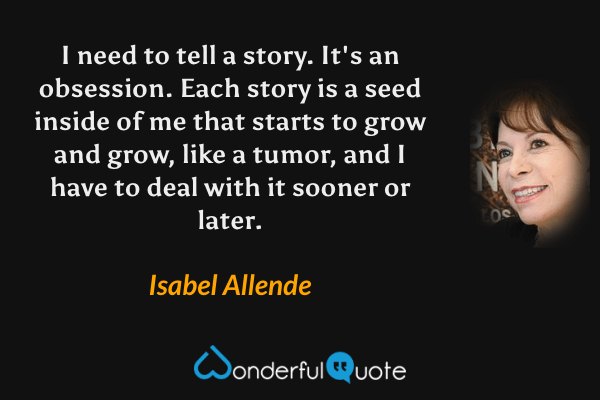
I need to tell a story. It's an obsession. Each story is a seed inside of me that starts to grow and grow, like a tumor, and I have to deal with it sooner or later.
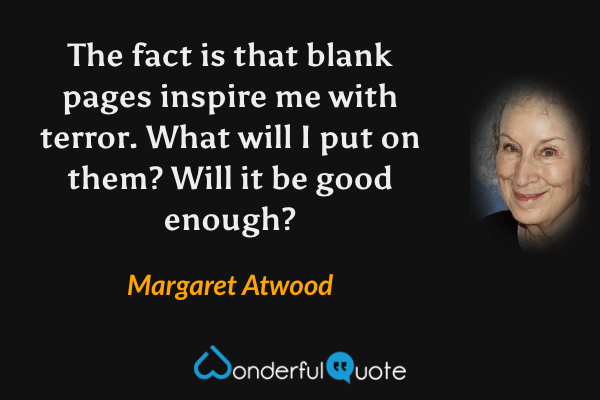
The fact is that blank pages inspire me with terror. What will I put on them? Will it be good enough?
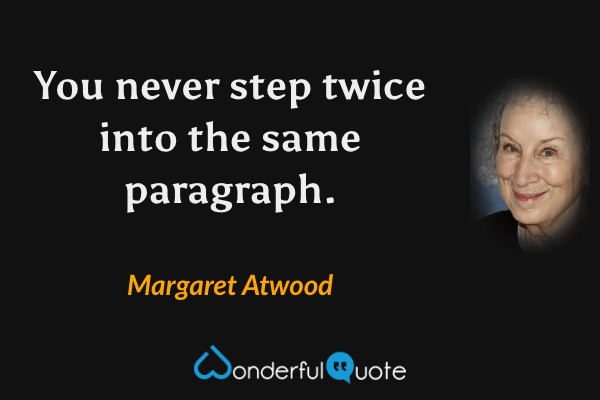
You never step twice into the same paragraph.
We are cups, constantly and quietly being filled. The trick is, knowing how to tip ourselves over and let the beautiful stuff out.
My stories have led me through my life. They shout, I follow. They run up and bite me on the leg—I respond by writing down everything that goes on during the bite. When I finish, the idea lets go.
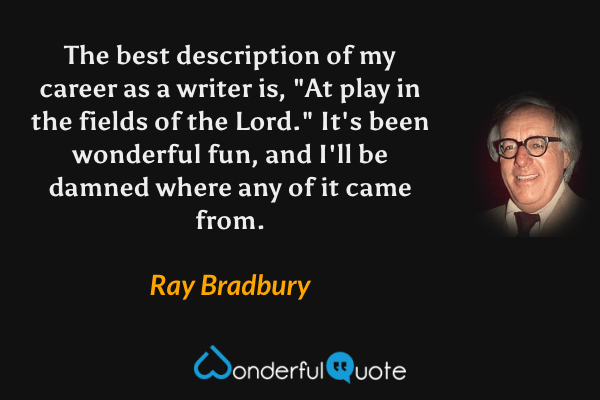
The best description of my career as a writer is, "At play in the fields of the Lord." It's been wonderful fun, and I'll be damned where any of it came from.
We call what we write "brainchildren," and just as a pregnancy must not be overstressed and artificially hurried for fear of damaging or aborting the child, so, too, a piece of work asks that we not try to force it in unnatural directions.
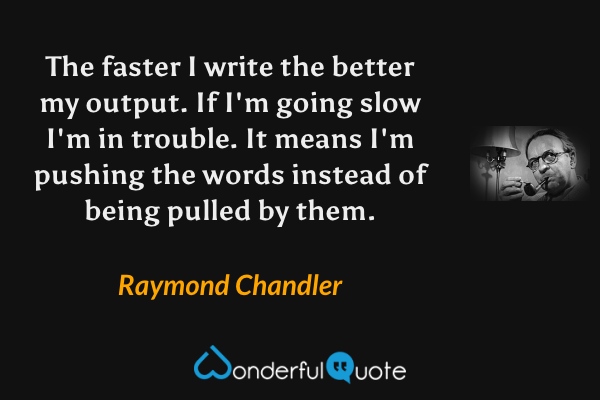
The faster I write the better my output. If I'm going slow I'm in trouble. It means I'm pushing the words instead of being pulled by them.
I can't write without a reader. It's precisely like a kiss—you can't do it alone.
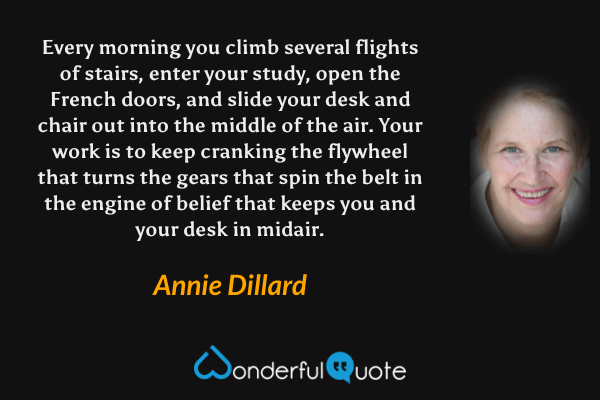
Every morning you climb several flights of stairs, enter your study, open the French doors, and slide your desk and chair out into the middle of the air. Your work is to keep cranking the flywheel that turns the gears that spin the belt in the engine of belief that keeps you and your desk in midair.
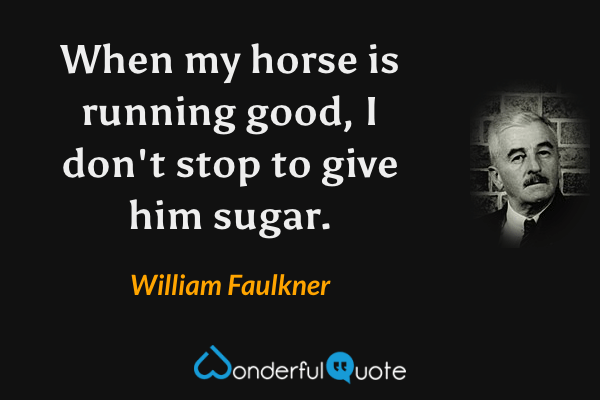
When my horse is running good, I don't stop to give him sugar.
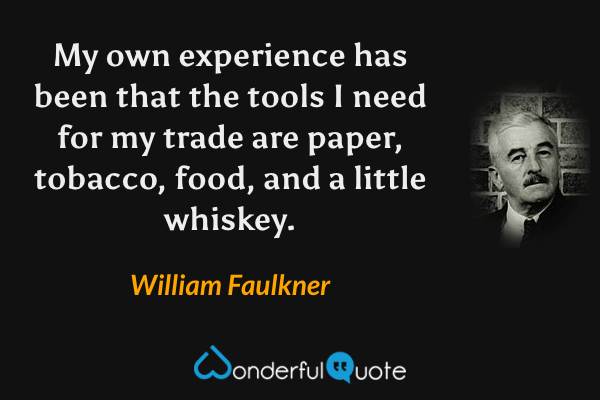
My own experience has been that the tools I need for my trade are paper, tobacco, food, and a little whiskey.
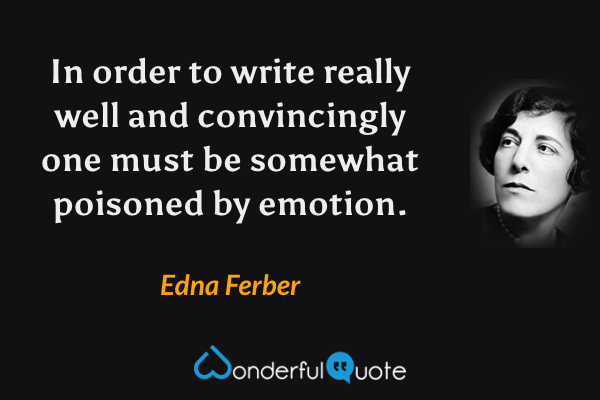
In order to write really well and convincingly one must be somewhat poisoned by emotion.
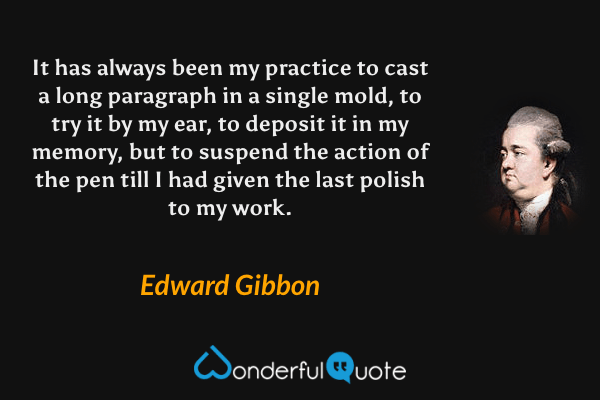
It has always been my practice to cast a long paragraph in a single mold, to try it by my ear, to deposit it in my memory, but to suspend the action of the pen till I had given the last polish to my work.
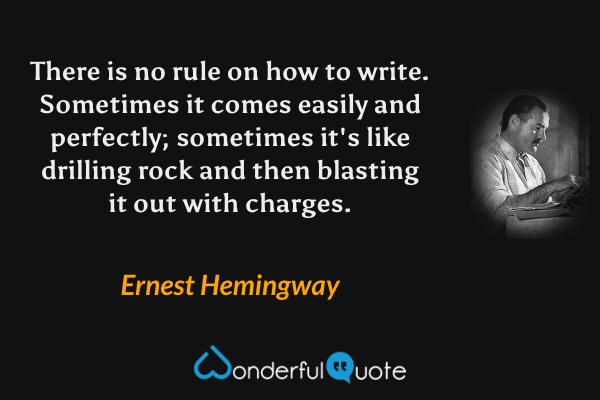
There is no rule on how to write. Sometimes it comes easily and perfectly; sometimes it's like drilling rock and then blasting it out with charges.
A writing career is like having homework your whole life.
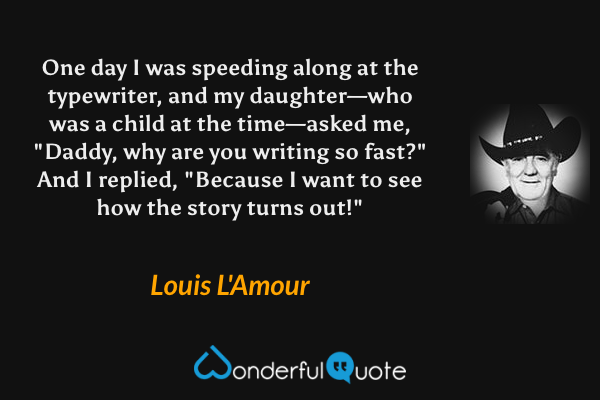
One day I was speeding along at the typewriter, and my daughter—who was a child at the time—asked me, "Daddy, why are you writing so fast?" And I replied, "Because I want to see how the story turns out!"
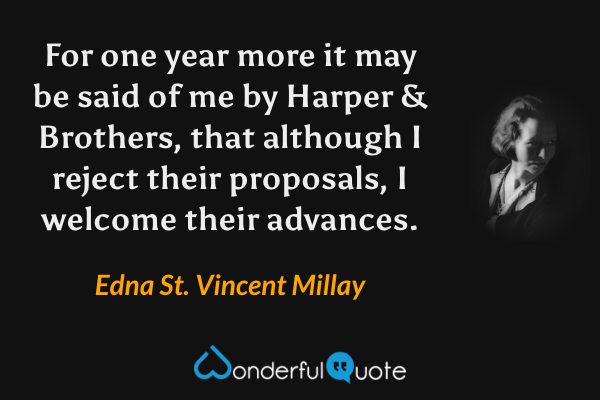
For one year more it may be said of me by Harper & Brothers, that although I reject their proposals, I welcome their advances.
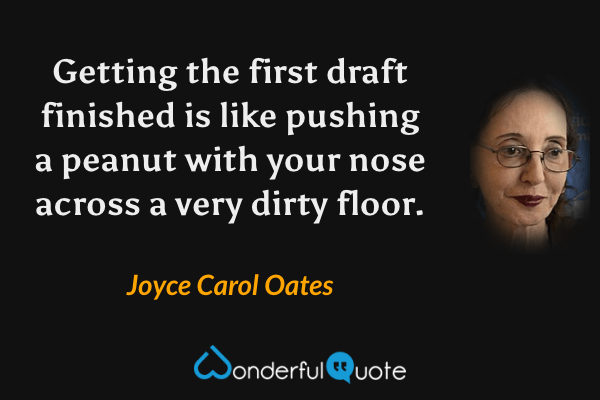
Getting the first draft finished is like pushing a peanut with your nose across a very dirty floor.
I've heard writers talk about "discovering a voice," but for me that wasn't a problem. There were so many voices that I didn't know where to start.
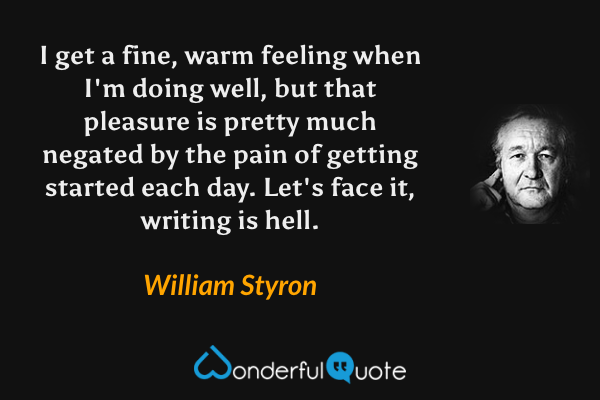
I get a fine, warm feeling when I'm doing well, but that pleasure is pretty much negated by the pain of getting started each day. Let's face it, writing is hell.
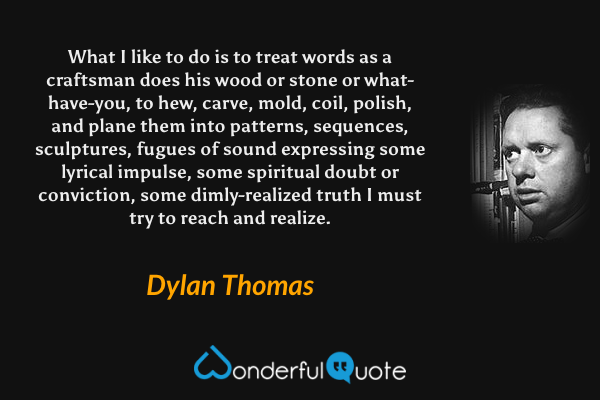
What I like to do is to treat words as a craftsman does his wood or stone or what-have-you, to hew, carve, mold, coil, polish, and plane them into patterns, sequences, sculptures, fugues of sound expressing some lyrical impulse, some spiritual doubt or conviction, some dimly-realized truth I must try to reach and realize.
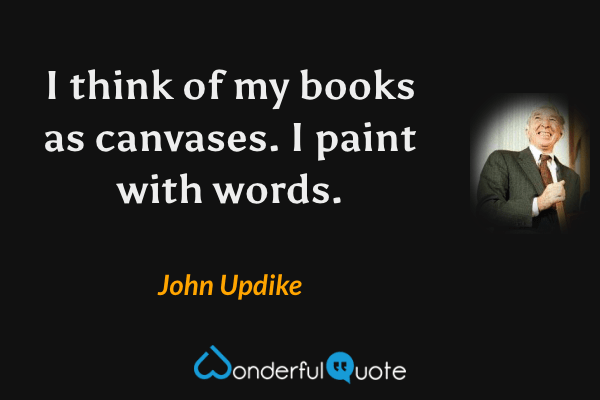
I think of my books as canvases. I paint with words.
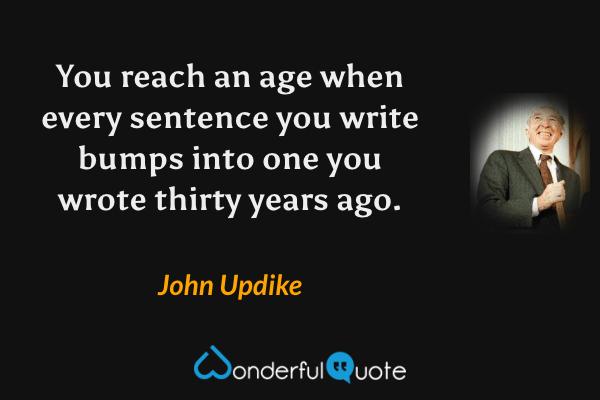
You reach an age when every sentence you write bumps into one you wrote thirty years ago.
For the last six weeks I have found myself pestered by some characters in search of an author.
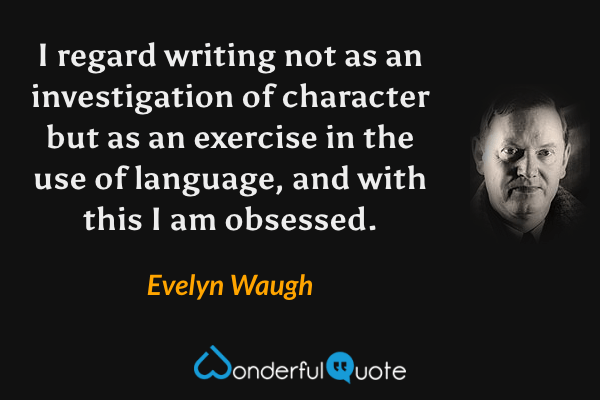
I regard writing not as an investigation of character but as an exercise in the use of language, and with this I am obsessed.
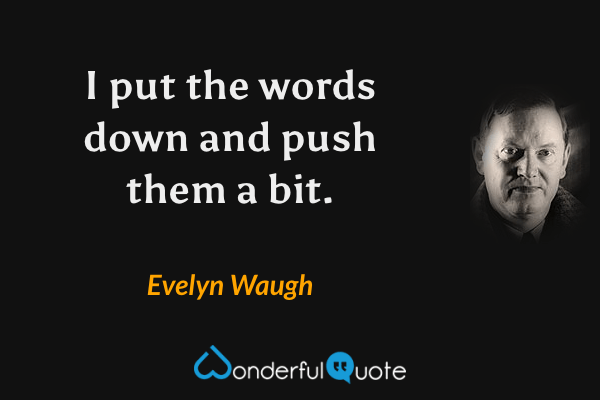
I put the words down and push them a bit.
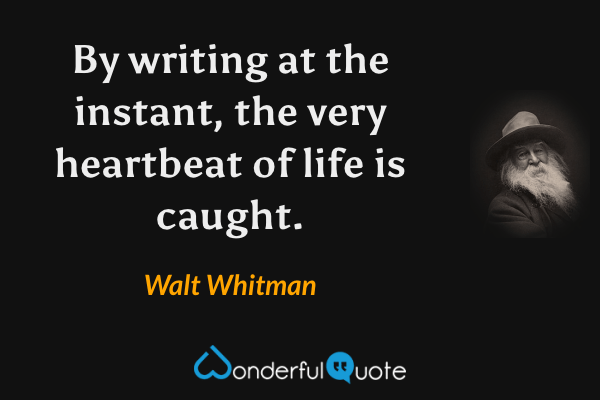
By writing at the instant, the very heartbeat of life is caught.
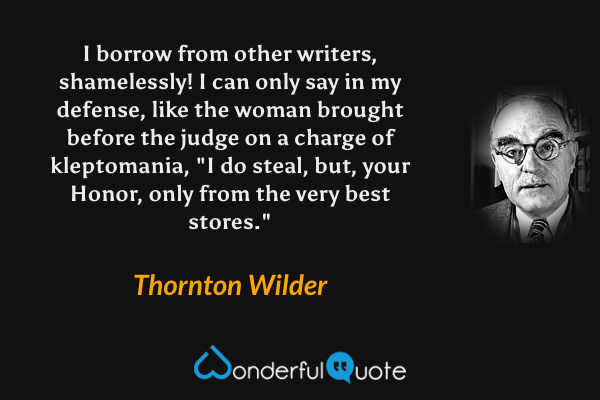
I borrow from other writers, shamelessly! I can only say in my defense, like the woman brought before the judge on a charge of kleptomania, "I do steal, but, your Honor, only from the very best stores."
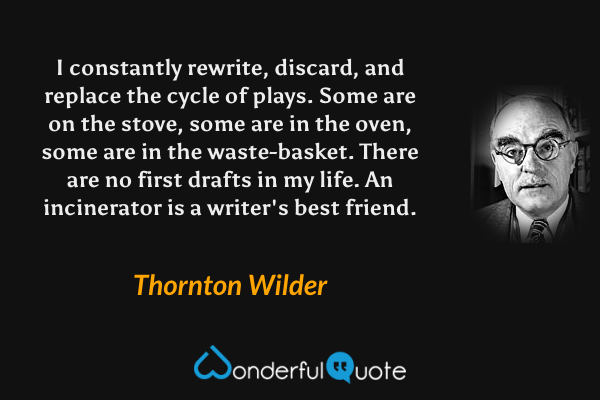
I constantly rewrite, discard, and replace the cycle of plays. Some are on the stove, some are in the oven, some are in the waste-basket. There are no first drafts in my life. An incinerator is a writer's best friend.
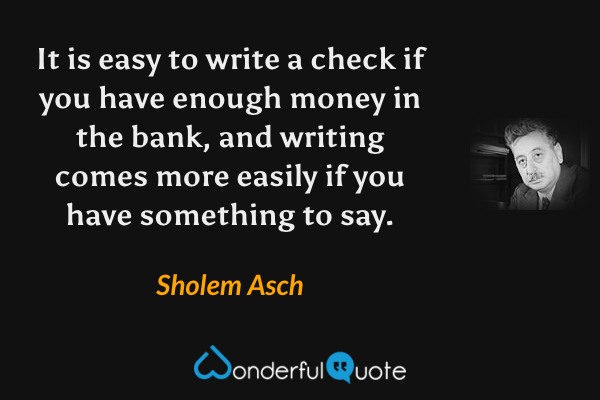
It is easy to write a check if you have enough money in the bank, and writing comes more easily if you have something to say.
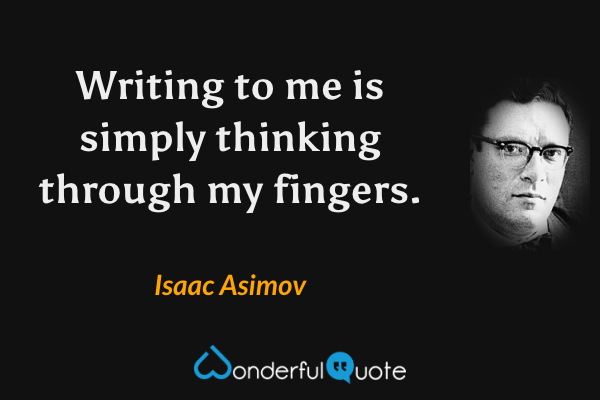
Writing to me is simply thinking through my fingers.
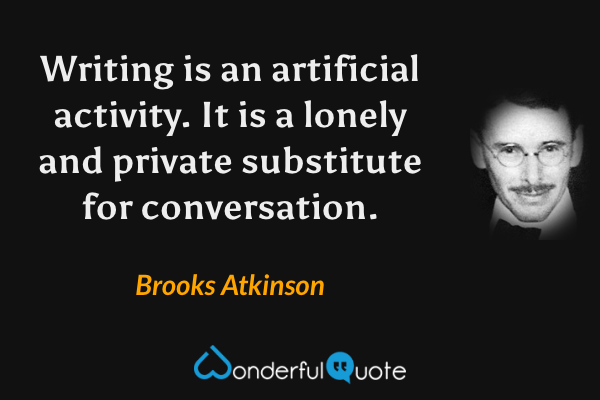
Writing is an artificial activity. It is a lonely and private substitute for conversation.
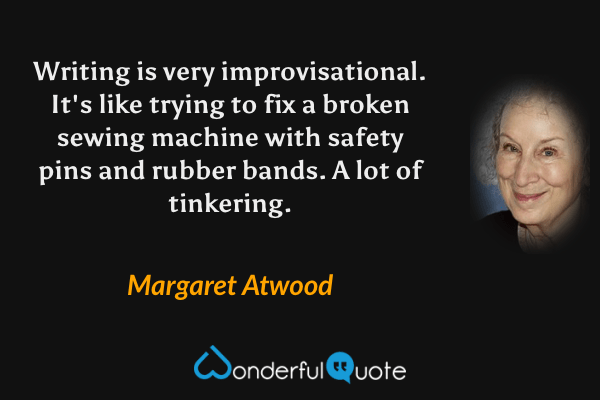
Writing is very improvisational. It's like trying to fix a broken sewing machine with safety pins and rubber bands. A lot of tinkering.
Writing is just a man alone in a room with the English language, trying to make it come out right.
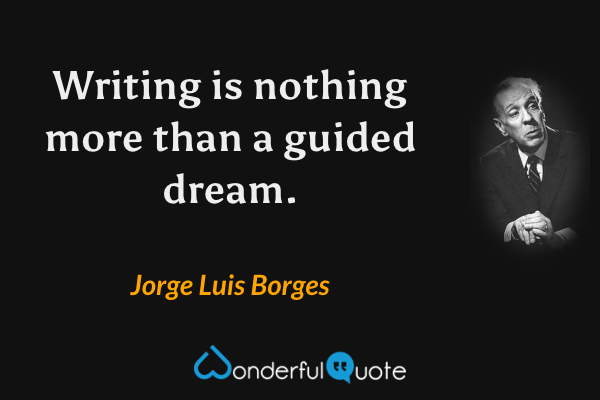
Writing is nothing more than a guided dream.
Writing, I think, is not apart from living. Writing is a kind of double living. The writer experiences everything twice. Once in reality and once in that mirror which waits always before or behind.
Writing is like hunting. There are brutally cold afternoons with nothing in sight, only the wind and your breaking heart. Then the moment when you bag something big. The entire process is beyond intoxicating.
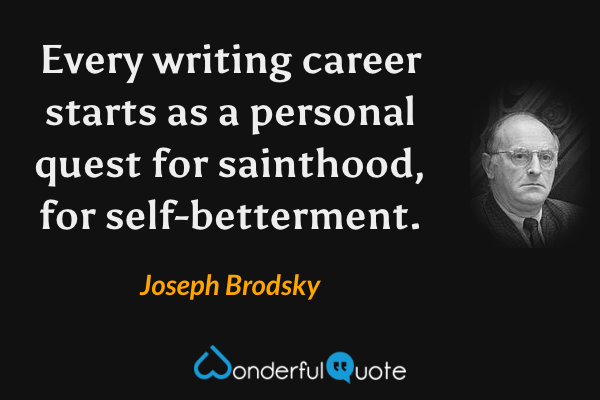
Every writing career starts as a personal quest for sainthood, for self-betterment.
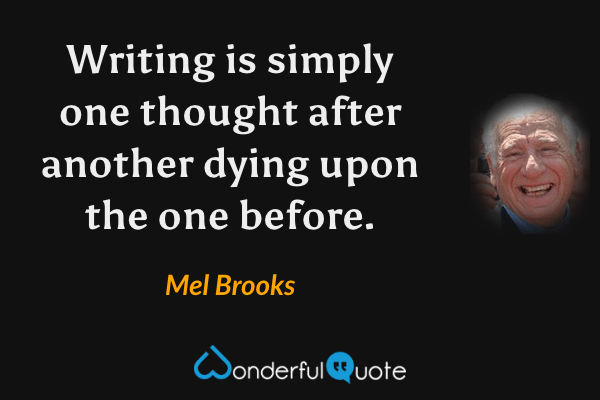
Writing is simply one thought after another dying upon the one before.
It is in the hard rockpile labor of seeking to win, hold, or deserve a reader's interest that the pleasant agony of writing comes in.
Writing is more than anything a compulsion, like some people wash their hands thirty times a day for fear of awful consequences if they do not.
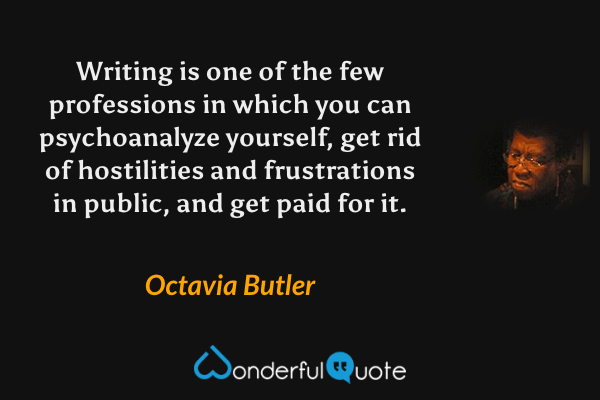
Writing is one of the few professions in which you can psychoanalyze yourself, get rid of hostilities and frustrations in public, and get paid for it.
Writing is like pulling the trigger of a gun; if you are not loaded, nothing happens.
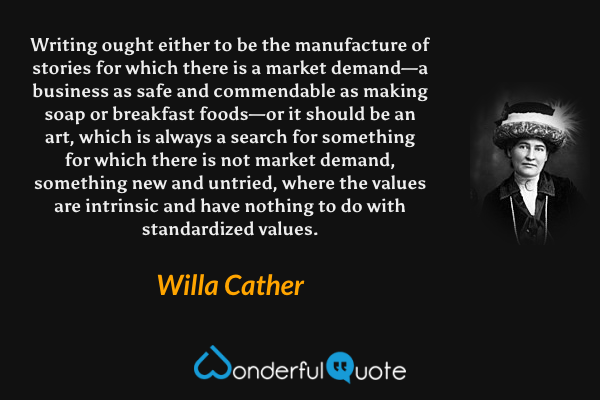
Writing ought either to be the manufacture of stories for which there is a market demand—a business as safe and commendable as making soap or breakfast foods—or it should be an art, which is always a search for something for which there is not market demand, something new and untried, where the values are intrinsic and have nothing to do with standardized values.
Writing is to descend like a miner to the depths of the mine with a lamp on your forehead, a light whose dubious brightness falsifies everything, whose wick is in permanent danger of explosion, whose blinking illumination in the coal dust exhausts and corrodes your eyes.
Writing is a labor of love and also an act of defiance. A way to light a candle in a gale wind.
Writing a book is an adventure. To begin with it is a toy, then an amusement. Then it becomes a mistress, and then it becomes a master, and then it becomes a tyrant and, in the last stage, just as you are about to be reconciled to your servitude, you kill the monster and fling him to the public.
Writing is conscience, scruple, and the farming of our ancestors.
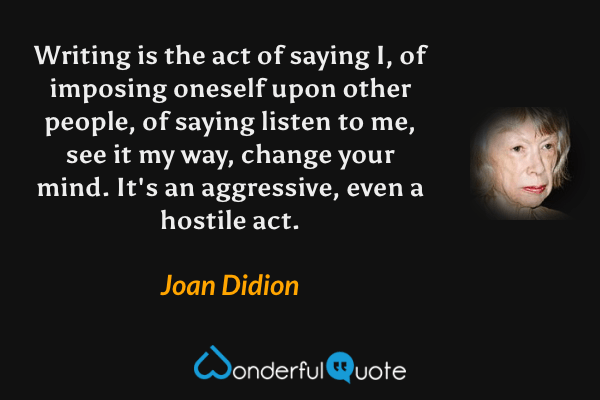
Writing is the act of saying I, of imposing oneself upon other people, of saying listen to me, see it my way, change your mind. It's an aggressive, even a hostile act.
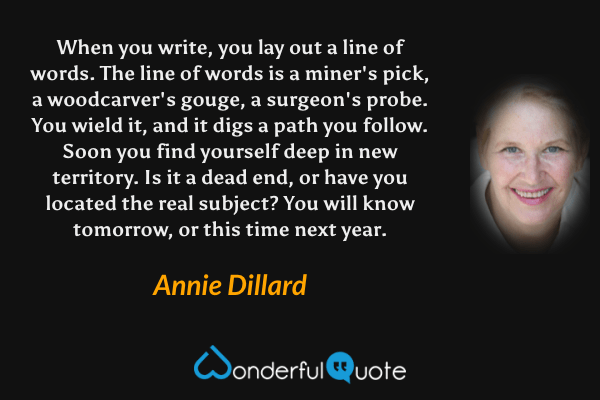
When you write, you lay out a line of words. The line of words is a miner's pick, a woodcarver's gouge, a surgeon's probe. You wield it, and it digs a path you follow. Soon you find yourself deep in new territory. Is it a dead end, or have you located the real subject? You will know tomorrow, or this time next year.
Writing is turning one's worst moments into money.
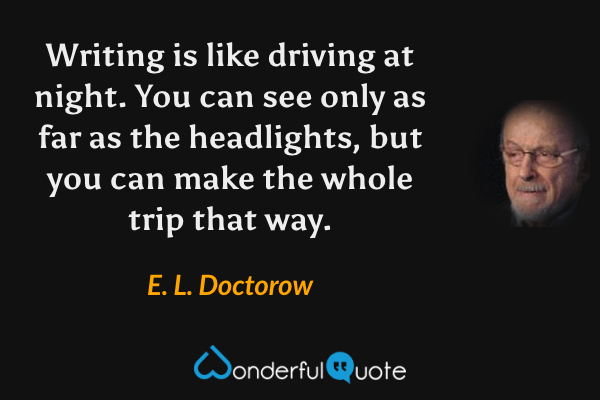
Writing is like driving at night. You can see only as far as the headlights, but you can make the whole trip that way.
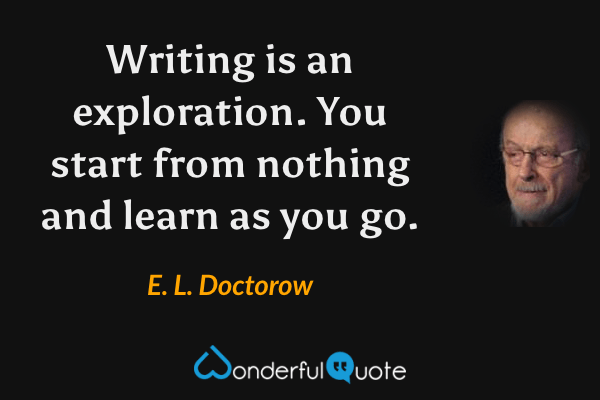
Writing is an exploration. You start from nothing and learn as you go.
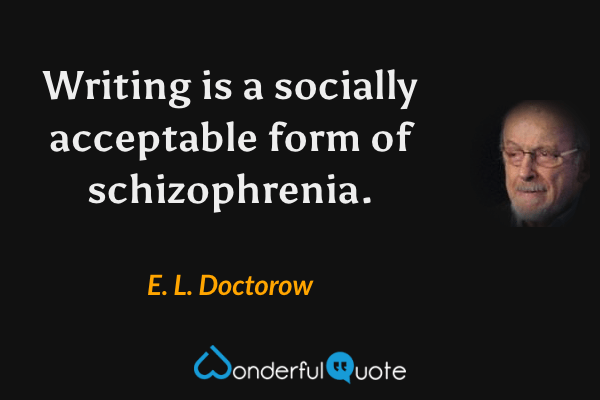
Writing is a socially acceptable form of schizophrenia.
What civilians do not understand—and to a writer anyone not a writer is a civilian—is that writing is manual labor of the mind: a job, like laying pipe.
![[Writing is] a kind of whittling, a kind of honing to the bone, until you finally get whatever the hell it is you're looking for. It's an exercise in sculpture, chipping away at the rock until you find the nose. - Stanley Elkin quote.](/img/q/51/42751A-writing-is-a-kind-of-whittling-kind-honing-bone-until-stanley-elkin.png)
[Writing is] a kind of whittling, a kind of honing to the bone, until you finally get whatever the hell it is you're looking for. It's an exercise in sculpture, chipping away at the rock until you find the nose.
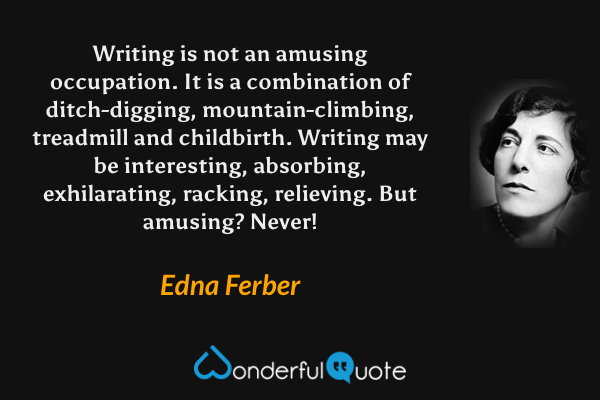
Writing is not an amusing occupation. It is a combination of ditch-digging, mountain-climbing, treadmill and childbirth. Writing may be interesting, absorbing, exhilarating, racking, relieving. But amusing? Never!
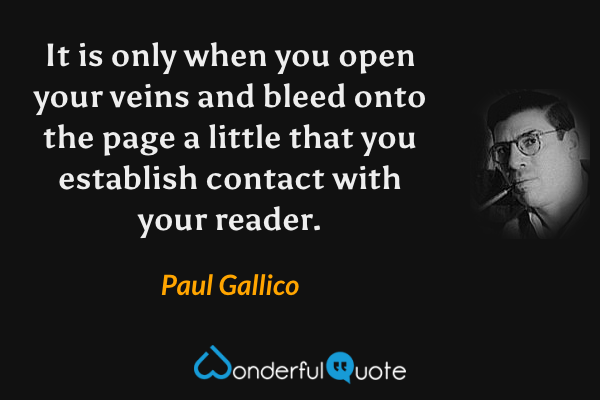
It is only when you open your veins and bleed onto the page a little that you establish contact with your reader.
Writing is a form of therapy; sometimes I wonder how all those who do not write, compose, or paint can manage to escape the madness, the melancholia, the panic fear which is inherent in the human situation.
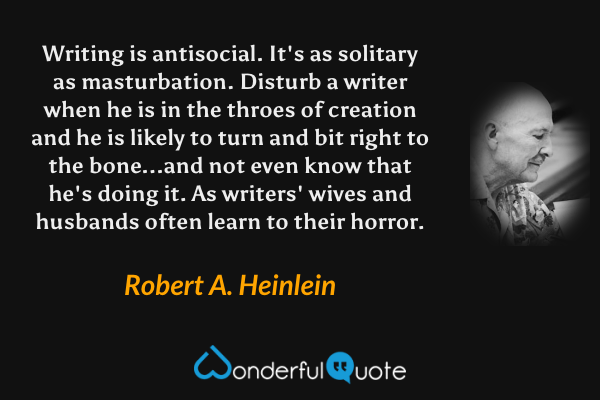
Writing is antisocial. It's as solitary as masturbation. Disturb a writer when he is in the throes of creation and he is likely to turn and bit right to the bone...and not even know that he's doing it. As writers' wives and husbands often learn to their horror.
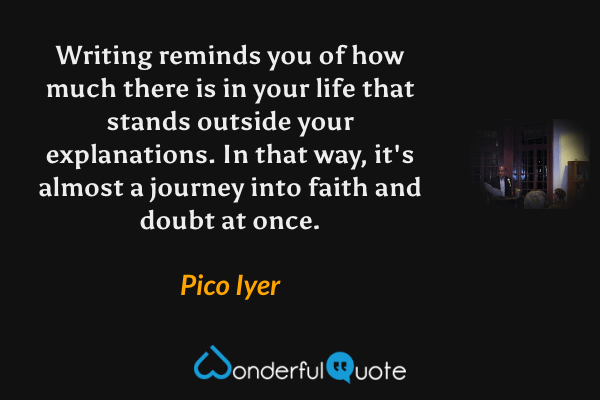
Writing reminds you of how much there is in your life that stands outside your explanations. In that way, it's almost a journey into faith and doubt at once.
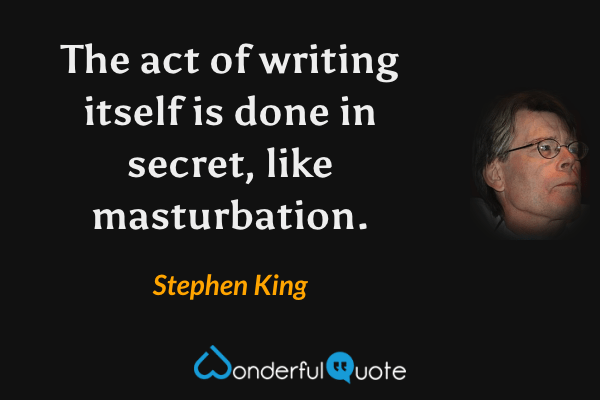
The act of writing itself is done in secret, like masturbation.
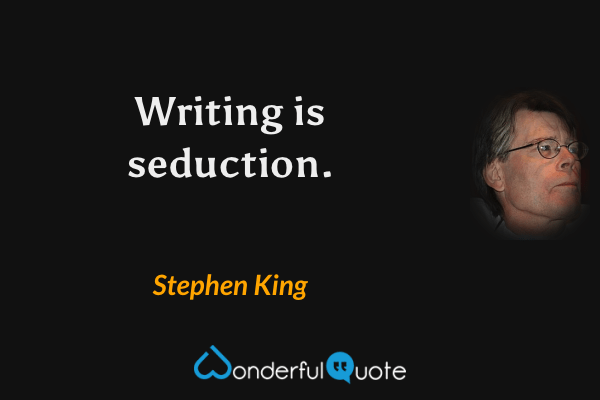
Writing is seduction.
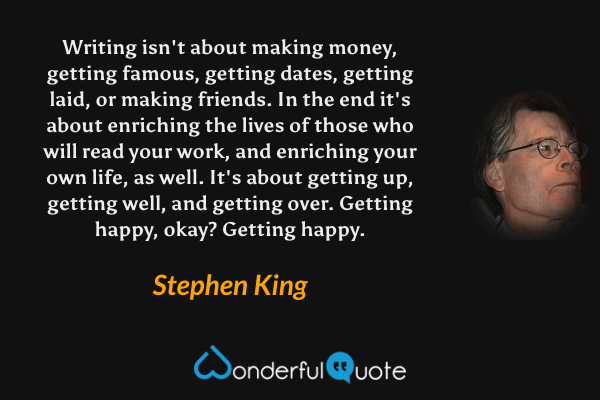
Writing isn't about making money, getting famous, getting dates, getting laid, or making friends. In the end it's about enriching the lives of those who will read your work, and enriching your own life, as well. It's about getting up, getting well, and getting over. Getting happy, okay? Getting happy.
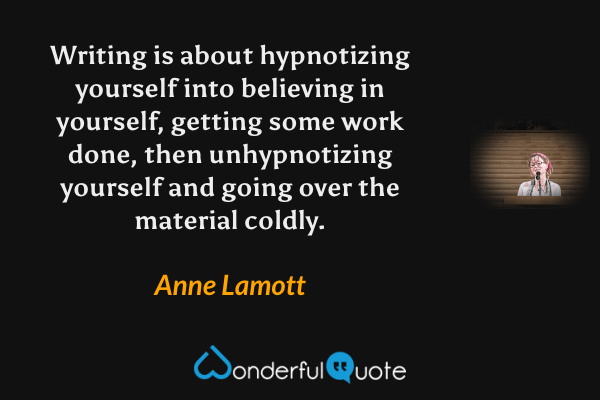
Writing is about hypnotizing yourself into believing in yourself, getting some work done, then unhypnotizing yourself and going over the material coldly.
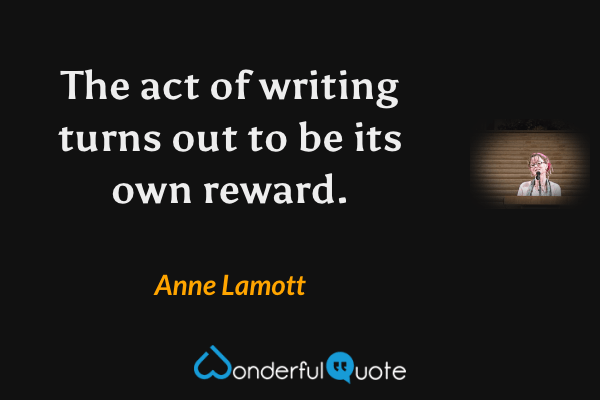
The act of writing turns out to be its own reward.
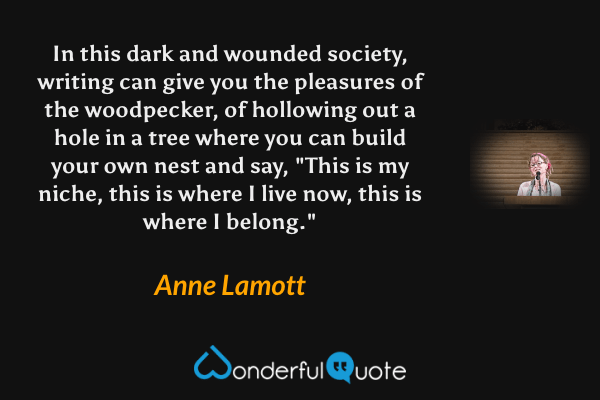
In this dark and wounded society, writing can give you the pleasures of the woodpecker, of hollowing out a hole in a tree where you can build your own nest and say, "This is my niche, this is where I live now, this is where I belong."
For me, writing is like throwing a Frisbee. You can play Frisbee catch with yourself, but it's repetitious and not much fun. Better it is to fling to others, to extend yourself across a distance.
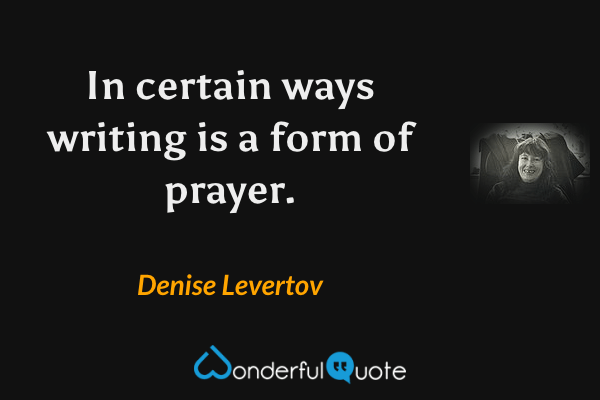
In certain ways writing is a form of prayer.
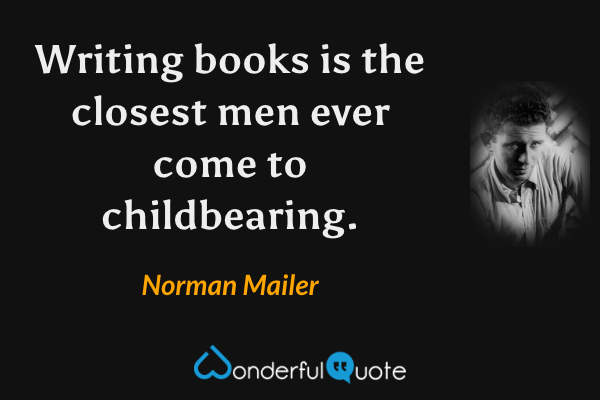
Writing books is the closest men ever come to childbearing.
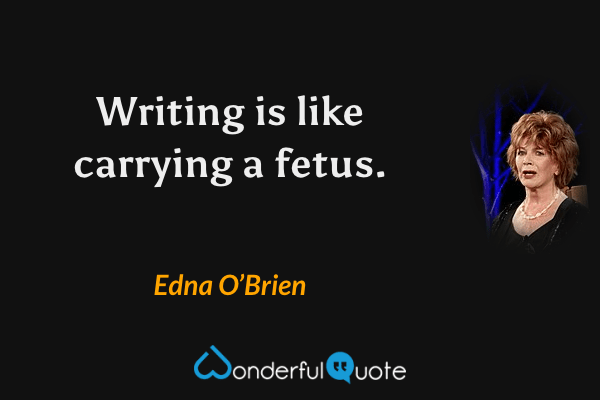
Writing is like carrying a fetus.
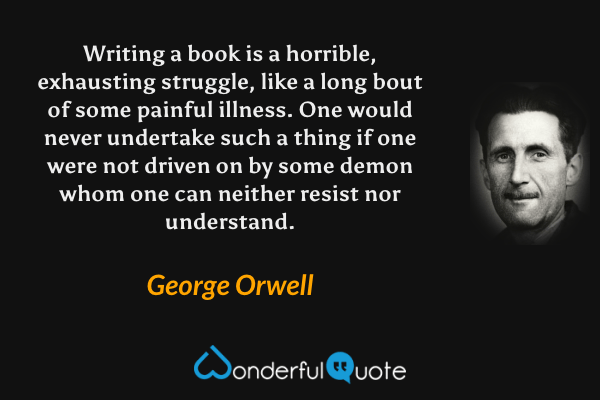
Writing a book is a horrible, exhausting struggle, like a long bout of some painful illness. One would never undertake such a thing if one were not driven on by some demon whom one can neither resist nor understand.
Writing is like exploring. Although the country a writer explores is imaginary, the discoveries he makes there are real. For it is the business of writers to reveal truths to us about ourselves and our lives.
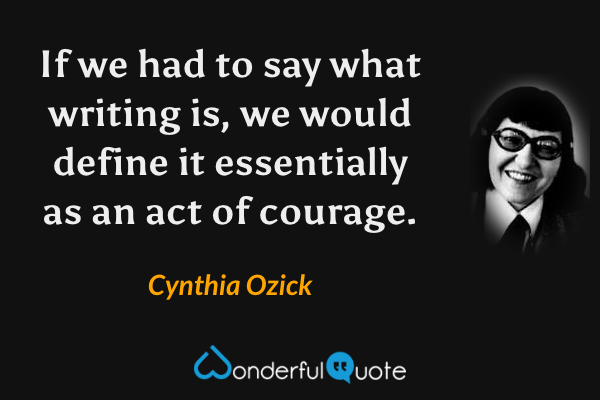
If we had to say what writing is, we would define it essentially as an act of courage.
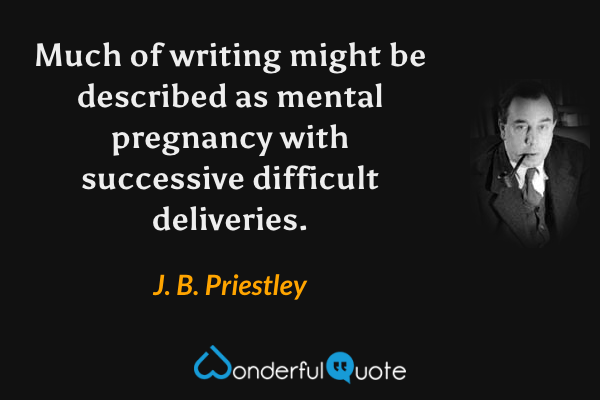
Much of writing might be described as mental pregnancy with successive difficult deliveries.
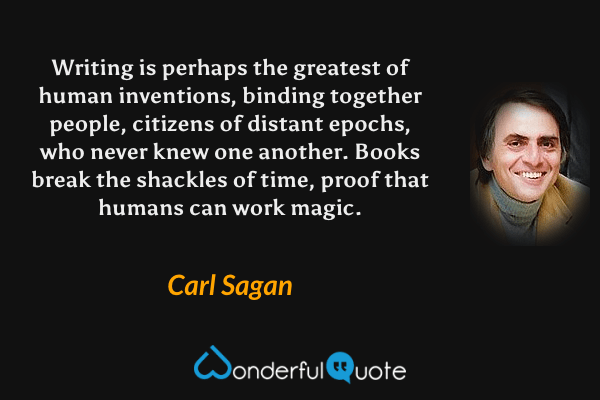
Writing is perhaps the greatest of human inventions, binding together people, citizens of distant epochs, who never knew one another. Books break the shackles of time, proof that humans can work magic.
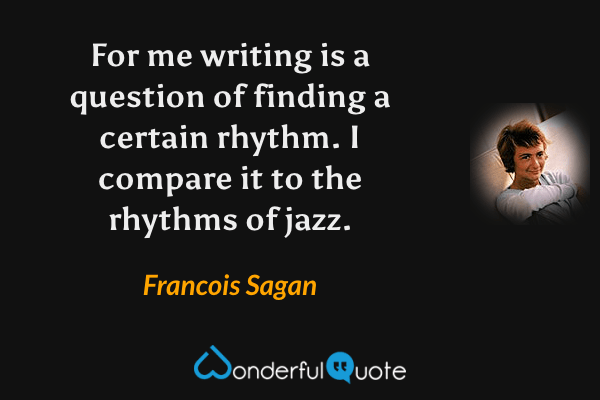
For me writing is a question of finding a certain rhythm. I compare it to the rhythms of jazz.
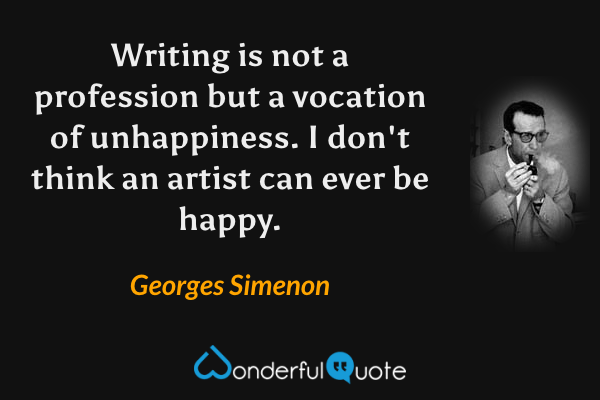
Writing is not a profession but a vocation of unhappiness. I don't think an artist can ever be happy.
Writing a column is easy. You just sit at your typewriter until little drops of blood appear on your forehead.
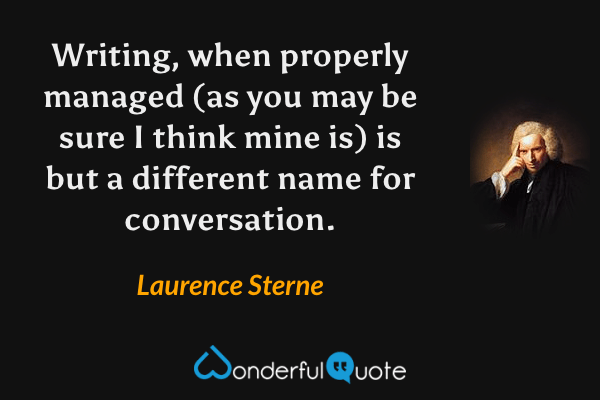
Writing, when properly managed (as you may be sure I think mine is) is but a different name for conversation.
The good writing of any age has always been the product of someone's neurosis, and we'd have a mighty dull literature if all the writers that came along were a bunch of happy chuckleheads.
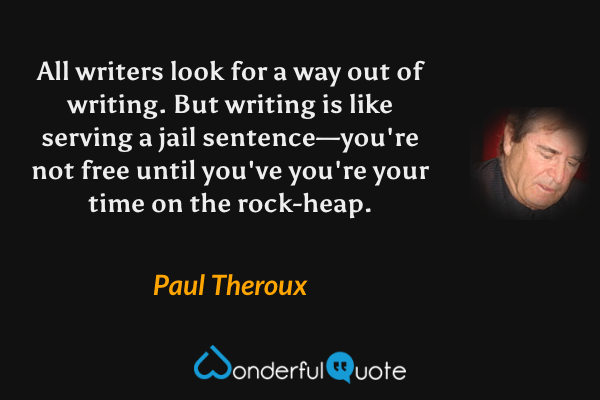
All writers look for a way out of writing. But writing is like serving a jail sentence—you're not free until you've you're your time on the rock-heap.
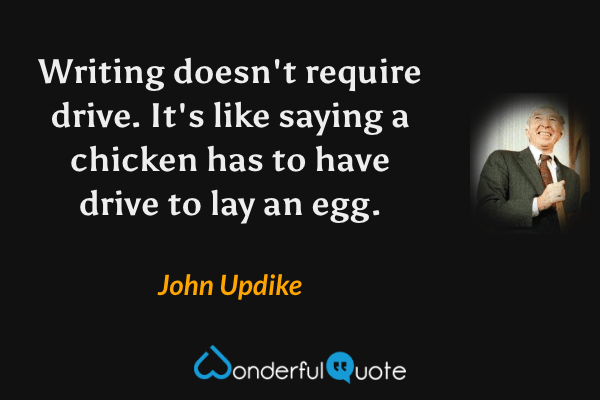
Writing doesn't require drive. It's like saying a chicken has to have drive to lay an egg.
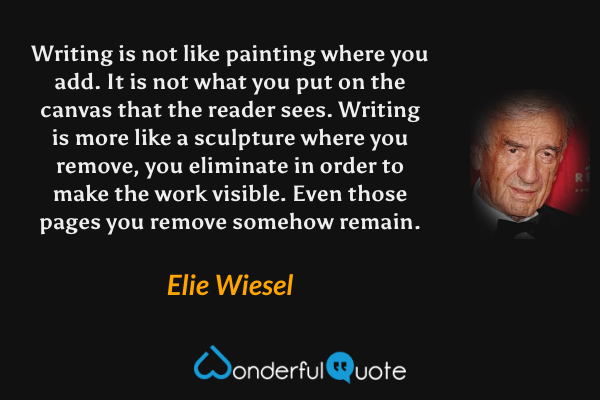
Writing is not like painting where you add. It is not what you put on the canvas that the reader sees. Writing is more like a sculpture where you remove, you eliminate in order to make the work visible. Even those pages you remove somehow remain.
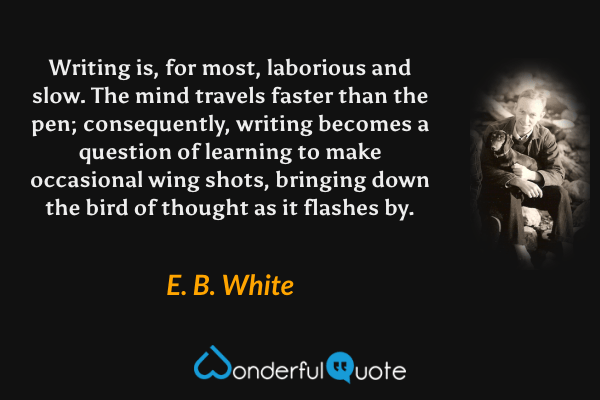
Writing is, for most, laborious and slow. The mind travels faster than the pen; consequently, writing becomes a question of learning to make occasional wing shots, bringing down the bird of thought as it flashes by.
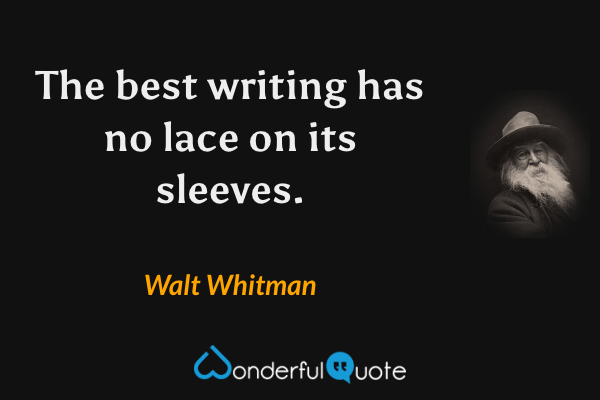
The best writing has no lace on its sleeves.
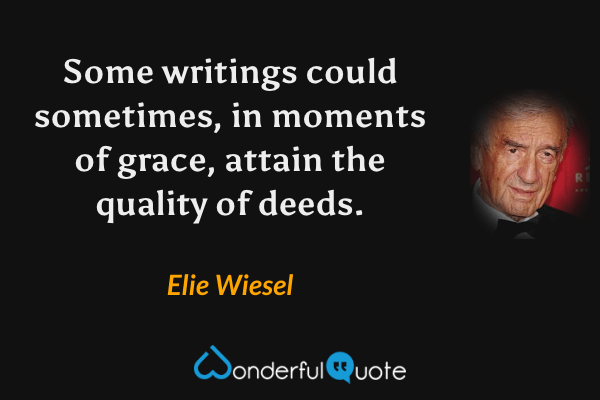
Some writings could sometimes, in moments of grace, attain the quality of deeds.
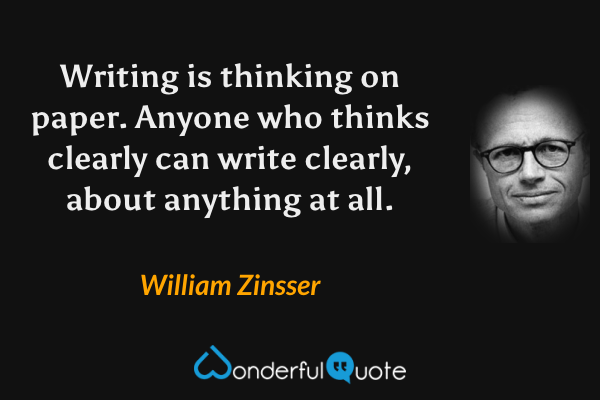
Writing is thinking on paper. Anyone who thinks clearly can write clearly, about anything at all.
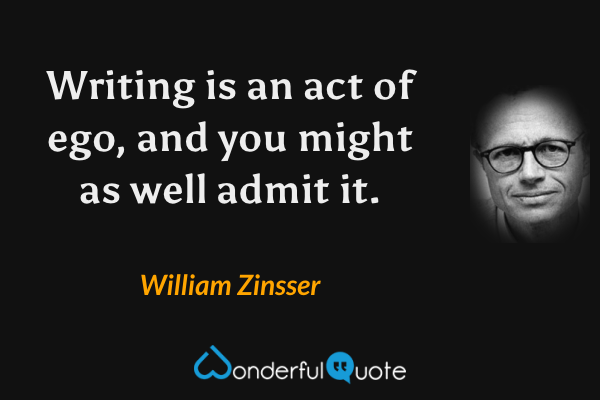
Writing is an act of ego, and you might as well admit it.
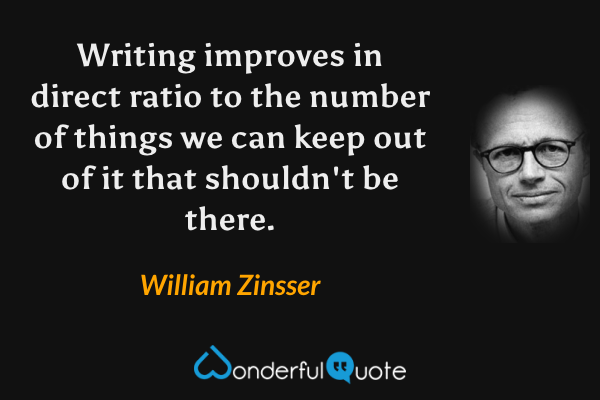
Writing improves in direct ratio to the number of things we can keep out of it that shouldn't be there.
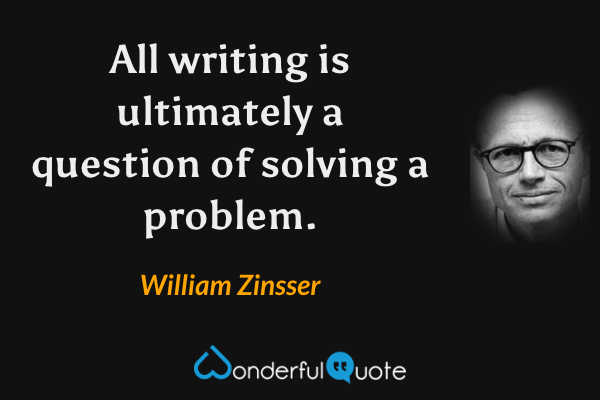
All writing is ultimately a question of solving a problem.
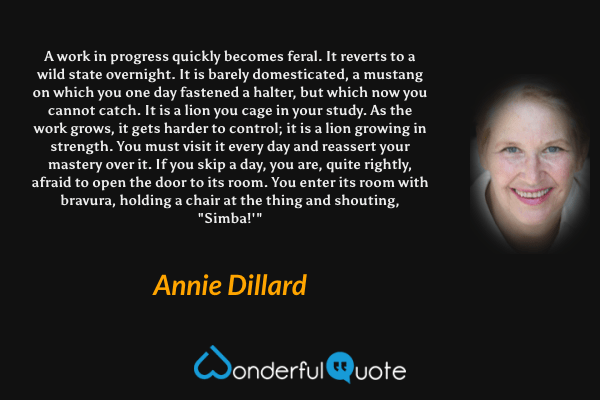
A work in progress quickly becomes feral. It reverts to a wild state overnight. It is barely domesticated, a mustang on which you one day fastened a halter, but which now you cannot catch. It is a lion you cage in your study. As the work grows, it gets harder to control; it is a lion growing in strength. You must visit it every day and reassert your mastery over it. If you skip a day, you are, quite rightly, afraid to open the door to its room. You enter its room with bravura, holding a chair at the thing and shouting, "Simba!'"
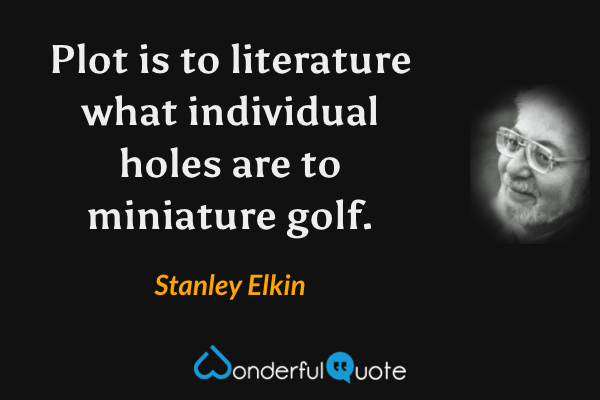
Plot is to literature what individual holes are to miniature golf.
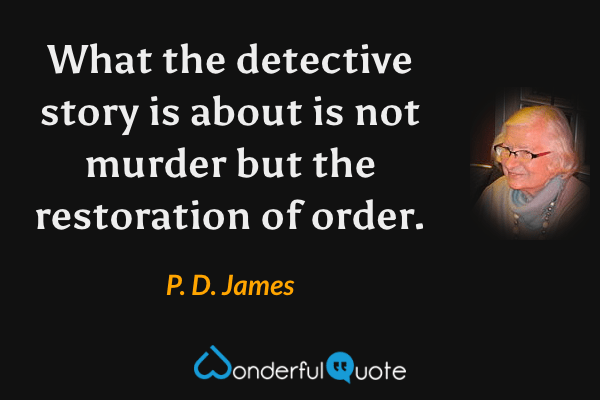
What the detective story is about is not murder but the restoration of order.
No blurb can be a bullet-proof vest, but in my own experience it can put a square inch of Kevlar over a worried writer's heart.
I can write better than anybody who can write faster, and I can write faster than anybody who can write better.
Manuscript: something submitted in haste and returned at leisure.
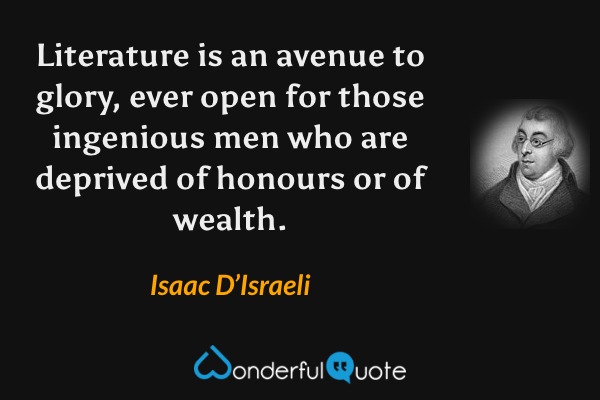
Literature is an avenue to glory, ever open for those ingenious men who are deprived of honours or of wealth.
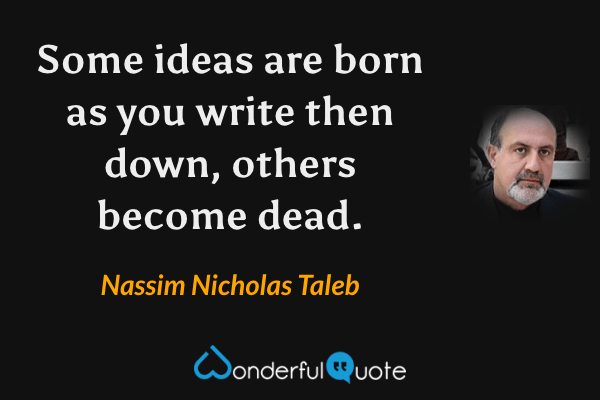
Some ideas are born as you write then down, others become dead.


